My eldest daughter had a hard day on Sunday…
… First, she went to the funeral of one of the four soldiers who was just killed, 20-year-old Amitai Even-Shoshan, who was a friend of hers. After the funeral, she went to the azkarah commemorating one year since the murder of her friend from midrasha, Maya Dee. These are not the only people she knew personally who lost their lives this past year. …
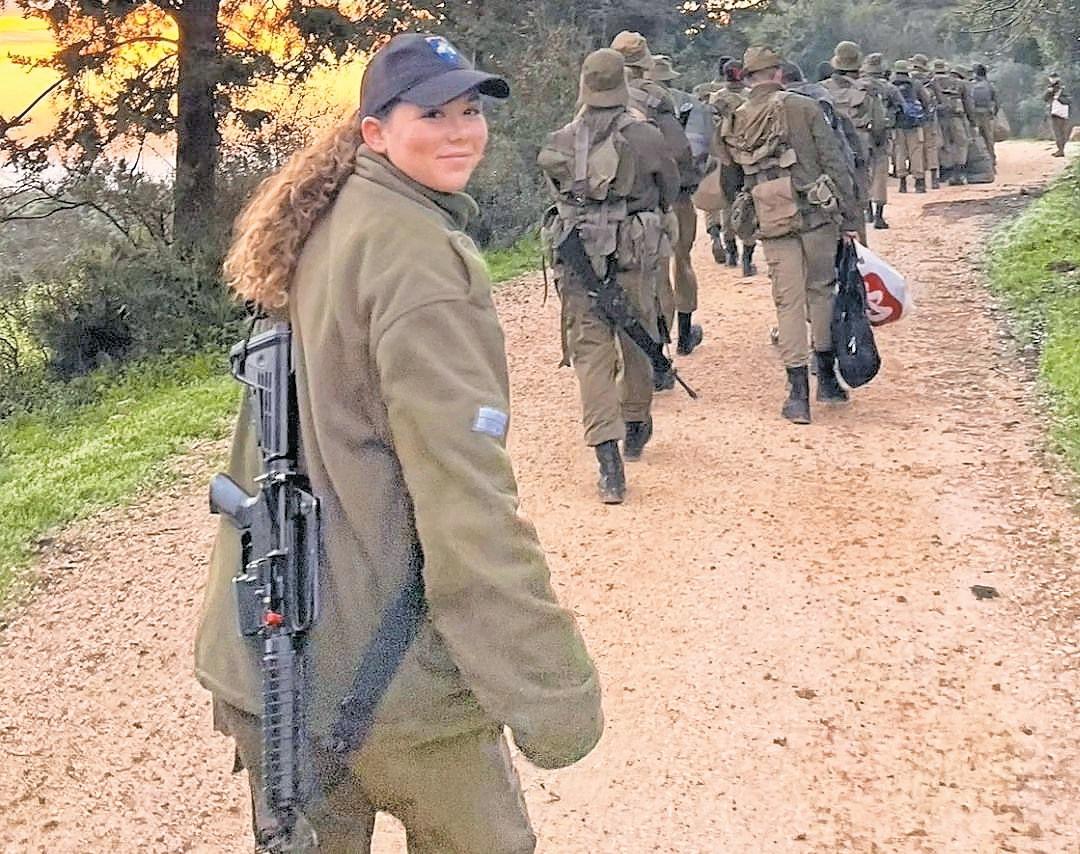

Ionce interviewed former Israeli Ambassador to the US Zalman Shoval, who was in his 90s (he is approaching 94 this month). He had lived the entirety of Israel’s history, often in high political and diplomatic positions, so at the end of our conversation, I asked if, given everything he had seen in his life, he was an optimist. He smiled and said, “I think Jews have to be optimists.”
I’m not sure whether Jews have to be optimists, but most of us are optimists. Considering everything we’ve been through over the
From Beit Shemesh Rabbi dR. NaTaN slifkiN
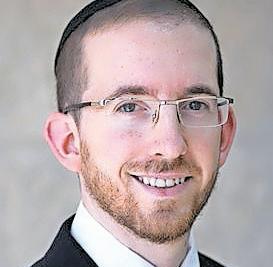
This is not how I grew up. My children are living a very different life than I had.
When I was growing up, the only funerals that I attended were those of my elderly grandparents. In England, it was almost inconceivable that someone I knew would have been killed in a terrorist attack (though not entirely inconceivable, as the IRA bombed my local shopping center). Certainly nobody that I knew was at risk of falling in battle, because nobody that I knew was in the army.
past 2,000 years, this is a rather remarkable thing, but it is the case. For millennia, the Jews have been strikingly inept at despair. Indeed, it is difficult to think of any great Jewish thinker who was a confirmed pessimist. There is Kohelet, whose Book of Ecclesiastes is one of the great statements of philosophical pessimism. And there is Kafka, who on his deathbed reportedly said, “There is no hope in this world. In the world to come, perhaps, but not in this one.” No one else springs immediately to mind, which says something in and of itself.
This absence of a pessimistic worldview may be the result of the messianic hope bored deep into the foundations of Judaism. Or perhaps Shoval was right that we have no choice. As James Baldwin put it, “I have to be an optimist, because I’m alive.” It may be as simple as that.
Perhaps neither optimism or pessimism is

particularly warranted. The traditional Jewish view tends to hold that there is a good inclination and an evil inclination, and we choose between them. There is no reason to think one will by definition triumph over the other.
Recently, however, a darker possibility occurred to me. Last week, probably for masochistic reasons, I was reading the New York Times
Perhaps when the whirlwind of war and hate passes, the world will look different.
editorial page. In it, one of the Times’ more lamentable columnists described the dire situation in Ukraine. Suddenly, the writer veered off into a rant that claimed it is Israel’s fault that the US is finding it difficult to muster up international support for the Ukrainian war effort. The “international community,” the writer claimed, was constantly asking American diplomats why it should support Ukraine while the US is supporting Israel. After all, aren’t Israel and Russia doing the same thing?
At that point, I thought: It’s a bad world. The only way Israel and Russia could be doing the same thing is if Ukraine sent hundreds of terrorists into Russia to slaughter, rape and torture thousands of innocent Russians in a genocidal religious frenzy. Comparing Israel’s war to Russia’s is so obviously and
See Eternal optimists on page 2
April 12, 2024 4 Nisan 5784 • Tazria • Vol 23, No 14 TheJewishStar.com Publisher@TheJewishStar.com • 516-622-7461
Tivkah Slifkin during her service in the IDF. Facebook See Daughter’s bad day on page 2
trusting in G-d’s care
Tivkah Slifkin remembers her friend, terror-victim Maya Dee, writing, “I can’t believe a year has passed without you. … I’m sure you’re making noise up there.”
We are eternal optimists,
NY’s Trusted Jewish Newspaper • Honest Reporting, Torah-True
daTEliNE: isRaEl bENJamiN kERsTEiN
Daughter’s bad day…
Continued from page 1
You went to high school, then yeshiva, then university, then a job. The worst thing that might happen would be getting cursed at or punched in the face by an antisemite (which happened to me on several occasions). Nobody was going to be killed or even seriously injured.
When the Hamas war started, I panicked. As a parent, I naturally questioned whether I am doing the right thing by raising my children in dati-leumi society in Israel.
With one exemption, all of the boys that I grew up with either still live in England or are charedi, and none of their children are likely to be facing the dangers and tragedies that mine will. So am I doing right by my children?
Eventually I managed to answer the question satisfactorily for myself. It includes many components, some of which I will address here, and others of which I hope to address in future posts.
Yes, I grew up in a very, very safe environment. But taking Jewish history as a whole, it was a bubble. For nearly four hundred of the past thousand years, Jews were banned from England. And only two generations ago, things had been very different for the Jews in
Rather than living Jewishishly-repressed lives, they are involved in the incredible national story of the Jewish people.
the rest of Europe.
Today, there is no serious threat to life for Jews in England. But you have to keep your head down, and it’s best to wear a hat to hide your kippah. The next district over from Manchester is Rochdale, whose parliamentary representative is an open supporter of Hezbollah and Hamas. And universities in England and the USA can be equally hostile to Jews.
Contrast that with how my children are growing up in Israel. They are so proud and outgoing with their Jewishness. They are involved with the country, with the nation, in every way. They are leading a life that involves youth movements and army or national service. They have met thousands more Jews their age than I ever met.
Their life involves serious challenges and traumatic experiences. But it is such a rich life.
My children are in many ways more developed and capable adults not only than I was at their age, but than I am now! You never know what life will throw at you, wherever and whenever you live — my children are developing the skills and traits for resilience and growth.
And rather than living mundane, Jewishlyrepressed lives, they are and will be actively involved on the front lines in the incredible national story of the Jewish People.
Following Oct. 7th, I was worried that I’m forcing my children into a life whose risks they either do not understand, do not want, or cannot imagine a way of avoiding. Then I realized that I was mistaken.
My daughter knows exactly what the risks are, even more than I do. And she knows that there are other ways to live, in the UK, US and in Israel. She knows that she could be in a community in which people don’t worry about
whether their children will survive the day.
But she doesn’t want that. She loves her life in Israel, even with its challenges. She loves being able to shout out her Jewishness.
She sits on the train in her IDF religious girls’ uniform and learns masechet Chagiga in memory of Maya and does not need to keep her head down. She understands religious and national responsibility in an incredibly deep way that I didn’t remotely grasp at her age. She knows that she is named after a
woman who at her age was in a concentration camp and how significant it is that her greatgranddaughter is in the IDF.
This is not how I grew up. And it’s scary and sometimes even alien that my kids are growing up this way. But it’s a way to grow up that most Jews in history could only have dreamed of. And my children are better, stronger people for it.
This article first appeared in Rabbi Slifkin’s “Rationalist Judiasm” column on Substack.com
Eternal optimists…
Continued from page 1
maliciously false that it could only be done by someone who knows it is false and does it anyway. In other words, someone who is a bad person.
If what the writer said is true — and it may well be — then we must accept that “the world” is largely composed of bad people and many of them wield considerable power. What can we say of such a world except it’s a bad world?
This is a difficult question for Jews. The idea that the world is essentially evil is not a Jewish one. It was for the most part a Christian invention and most fervently embraced by the now extinct Gnostic heretics. Even the orthodox Christian view of a “fallen” world is somewhat attenuated and always promises ultimate redemption.
The Kabbalah does posit that the world was shattered at the very moment of creation and we are all living in the wreckage. However, Kabbalistic thought is also passionately messianic, never doubting that the world will be repaired and made whole again in the inevitable tikkun olam.
But what if tikkun is not enough? What if, after centuries of persecution, pogroms, blood
libels, religious apartheid, discrimination in all areas of life, the Holocaust, decades of terrorism, and now Oct. 7, the time has come for the Jews to condemn the world itself? To accept that the world is irredeemable?
Perhaps we should finally admit there will be no tikkun olam because the world is unworthy of being repaired. Perhaps we should simply get on with dealing with the world as it is — a bad world.
I have no good answers to these questions. To believe that the world is actually evil and we are all living in the Kabbalah’s Sitra Achra whether we like it or not is further than I am prepared to go. Perhaps when the whirlwind of war and hate passes, the world will look different.
For myself, if there is any optimism to be had at the moment, it may be in Rabbi Hillel’s admonition: “In a place where there are no men, strive to be a man.”
That is, remain who you are even when the world is telling you not to. It may be a bad world, but you need not accept its badness. There is dignity and power in telling the gods to go to hell. Perhaps the knowledge that no one can stop us from doing so is optimism enough for now.


















April 12, 2024 • 4 Nisan 5784 THE JEWISH STAR 2 SOX WORLD PLUS Where You Get The Most For Your Money Visit our Website Soxworld-Plus.com 120 Cedarhurst Avenue, Cedarhurst • 516-295-4404 Open Mon–Thurs. 9:30-5:30 • Fri 9:30-5 • Sun. 10-5 freeonshipping $49 or more PHONE ORDERS ACCEPTED Special offers through 4/28/24. Not to be combined with any other special offers. curbside pickup hOLiDay Sa Le LARGE SELECTION MELAS MEMOI LEVANTE ALL YOUR FAVORITE STYLES AT THE LOWEST PRICE ADEA SALE 20% OFF SHELLS & bodySuitS SALE MEN’S PATTERN SOCKS HOTSOX 20% OFF Sugg Retail UNSIMPLY STITCHED 15% OFF SALE 20% OFF LAdIES kIkI RIkI LARGE SELECTION ladies & children shells, skirts, dresses in stock — kiki riki panel skirts, 24" & new lengths! 27" 29" 32" 35" LADIES LOUNGE w EAR 30% OFF GIRLS SwIMwEAR LADIES Sw IM w EAR SALE 25% OFF 1251623 12 Denier C-Top 3 f or$1195 30 Denier C-Top 3 f or$1395 40 Denier C-Top 3 f or$1495 80 Denier C-Top FooTless TighTs $795 EAch NEW HOISERY LINE! BuY 12 GEt 1 FREE SALE ESATTO MEN’S bRANdS Jock E y uNdERWEAR & GoLdtoE SockS SALE 25% OFF

Your Passion at Bar-Ilan University
We believe that education is not just about acquiring facts or gaining expertise, but about igniting the flames of passion within each student.
Why Bar-Ilan University?
• Ranked in the top 2% of all universities in the world – Shanghai Academic Ranking of World Universities.
• One of Israel's leading and fastest-growing institutions of higher education.
• Wide range of undergraduate, graduate, doctoral, and postdoctoral programs in English and in Hebrew.
• Vibrant Jewish life on campus.
• International School: Dedicated staff members and academic advisors provide assistance in a variety of areas.
• Located in the metropolitan area of Tel-Aviv.


• NEW! Multilingual Undergraduate Programs
First year in English with intensive Hebrew Ulpan. Integrate into Hebrew program from second year. Programs include Engineering, Computer Science, Life Sciences, and LLB (Bachelor of Laws).
Come join us on our beautiful campus and give yourself the opportunity of a lifetime.
Contact Us
International School
Bar-Ilan University
Tel: +972-3-738-4245
Email: intl.info@biu.ac.il
Website: biuinternational.com

THE JEWISH STAR April 12, 2024 • 4 Nisan 5784 3
biuinternational.com Be in Israel BU@BIU
Impacting tomorrow, today.
Find
1253861
Torres joins Bronxites at Oct. 7 terror sites
By Eric Harvey, Riverdale Press
It wasn’t Rep. Ritchie Torres’ first trip to Israel, but it was his first since last Oct. 7.
The two-day trip, led by Torres and sponsored by the UJA Federation of New York, included 10 Bronx religious and civic leaders, who met with families of hostages and saw the devastation of Kibbutz Nir Oz firsthand.
“What I found in Israel was a deep reservoir of gratitude for the United States,” Torres said. “I went to Israel with a simple message: You are not alone.”
Travelers included Riverdale Jewish Center Rabbi Dovid Zirkind; Benjamin Franklin Reform Democratic Club President Virginia Krompinger; and SAR’s principal, Rabbi Binyamin Krauss. Rabbi Krauss said that even though this was his fifth trip since Oct. 7, it was still an emotional and powerful experience.
“You could walk through Jerusalem and Tel Aviv and feel like everything’s normal,” Rabbi Krauss said. “The cafes are open and things like that, but then you just peel one layer. Everybody’s got a child serving or who has been serving or it’s very easy to meet someone who’s suffered loss or has a hostage in Gaza.”
Upon landing in Israel Sunday night, March 31, the group went straight to Hostages Square in Tel Aviv, where they met with families of some of the hostages and were led to an installation to simulate what it would feel like to be an Israeli hostage in a tunnel.
The next morning, they met Israel Defense Minister Yoav Gallant, briefed them on what’s going on both in the south and north. The travelers then visited Kibbutz Nir Oz near the Gaza

spoke to one survivor who personally knows half of the hostages in captivity, which is a level of trauma that most of us cannot even begin to fathom.”
The group later visited the Tribe of Nova music festival site, where more than 360 were killed
mile from the Gaza border and could hear the sound of conflict. He described it as unnerving.
Along the way, the travelers talked to those with opposing views, meeting leader of the United Arab List and Knesset member Mansour Abbas, as well as former Israel Prime Minister Yair Lapid, now an opposition leader.

“I have been traveling to Israel for about a decade and there is no politician in Israel who has inspired me more than Mansour Abbas,” Torres said. “He was the first Arab to enter the Israeli gov-
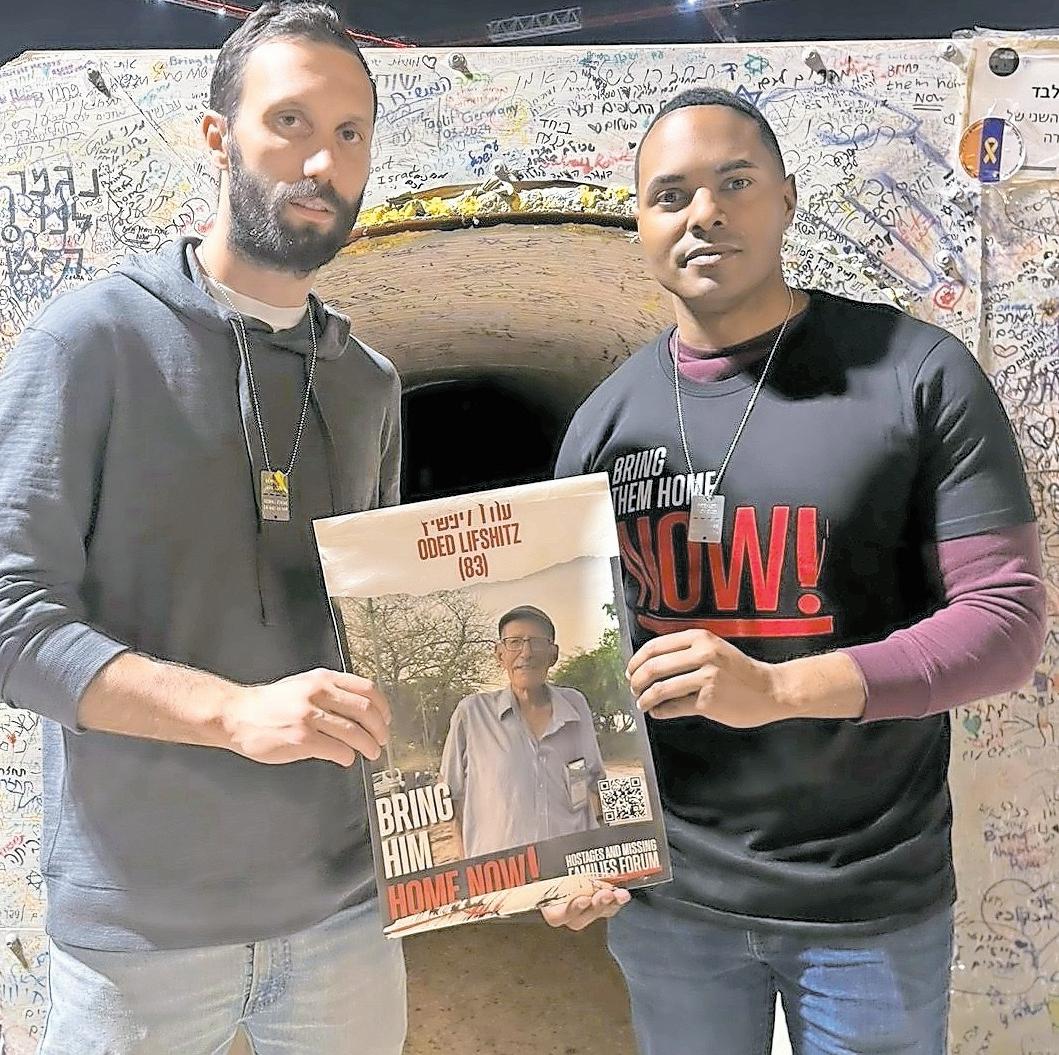
The trip ended with a tribute at the Kotel for the late Joe Lieberman, a former Connecticut senator who died at his Riverdale home a few days prior to the trip and was a champion of Israel.
Torres left Tuesday, one day after seven World Central Kitchen aid workers were killed in an Israeli airstrike on Gaza. He said those killed were heroes and expressed condolences to their families.
“Israel did the right thing in apologizing and conducting a swift investigation and holding accountable those responsible for the tragedy,” Torres said. “And every country including Israel has an obligation to learn from its mistakes and apply lessons learned in order to prevent these tragedies and accidents from happening in the future.”






















 Rep. Ritchie Torres tours the devastation at Kibbutz Nir Oz on April 1. Courtesy Rabbi Binyamin Krauss
Rep. Ritchie Torres and Daniel Lifshitz with poster damanding release from Gaza captivity of Lifshitz’s grandfather, Oded Lifshitz. Behind them is a mock tunnel meant to simulate the experience of hostages in Gaza. Courtesy Rabbi Binyamin Krauss ernment, creating the most diverse government in the history of Israel. He is deeply committed to coexistence between Israeli Jews and Israeli Arabs.”
Rep. Ritchie Torres tours the devastation at Kibbutz Nir Oz on April 1. Courtesy Rabbi Binyamin Krauss
Rep. Ritchie Torres and Daniel Lifshitz with poster damanding release from Gaza captivity of Lifshitz’s grandfather, Oded Lifshitz. Behind them is a mock tunnel meant to simulate the experience of hostages in Gaza. Courtesy Rabbi Binyamin Krauss ernment, creating the most diverse government in the history of Israel. He is deeply committed to coexistence between Israeli Jews and Israeli Arabs.”
April 12, 2024 • 4 Nisan 5784 THE JEWISH STAR 4 1252373 1252558



































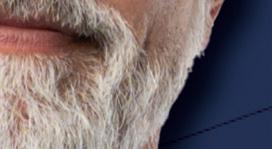






































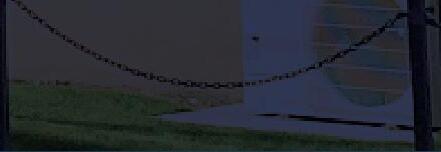


THE JEWISH STAR April 12, 2024 • 4 Nisan 5784 5 1250819
Tale of 2 UN tweets at Oct. 7 six month mark
By Mike Wagenheim, JNS
On April 7, six months after Hamas’ terror attack in southern Israel, António Guterres, the United Nations secretary-general, posted a single message on social media — about the Rwandan genocide, which occurred 30 years ago.
The UN leader had briefly noted the sixmonth mark since Hamas’ attack in the days leading up to that Sunday.
Several people, including Yaari Cohen, an Israeli Foreign Affairs Ministry staffer, criticized Guterres.
“Seriously? No mention of the 134 Hostages still held in captivity at this very moment?” Cohen wrote. “No mention of the violent sexual assaults committed by Hamas on that day? That’s it? You should be ashamed of yourself.”
Some 19 minutes after his original post (and 17 after Cohen’s critique), Guterres wrote, “I renew my call for the unconditional release of all hostages still held by Hamas and other groups.”
“I have met with many of the family members of those being held captive and even former hostages themselves,” the secretary-general added. “I carry their anguish, uncertainty and deep pain with me every day.”
It was not clear if Guterres issued the second tweet in response to the criticism. But it is clear that he posted four more times that day — largely criticizing Israel.
In the first, he wrote that Israel has caused “relentless death and destruction to Gaza” and engaged in “collective punishment of the Palestinian people.” An hour and a half later, Guterres wrote that he hopes “sincerely” that Israel’s plan to increase aid to Gaza will be “effectively and quickly materialized.”
Just over two hours later, the UN head wrote that “in its speed, scale and inhumane ferocity, the war in Gaza is the deadliest of conflicts — for civilians, aid workers, jour-


nalists, health workers and for our UN colleagues.”
“I am deeply troubled by reports that the Israeli military’s bombing campaign includes AI as a tool in the identification of targets, resulting in a high level of civilian casualties,” Guterres wrote three and a half hours later, referring to artificial intelligence. “AI should be used as a force for good to benefit the world; not to contribute to waging war on an industrial level, blurring accountability.”
Guterres was referring to a media report on the Israel Defense Forces’ use of artifi-

cial intelligence in its operations, which the IDF has called inaccurate and misleading.
The next day, on Saturday, Guterres wrote again about the six-month anniversary of Oct. 7. “The 7th of October is a day of pain for Israel and the world. Nothing can justify the horror unleashed by Hamas,” he wrote.
“I once again condemn the use of sexual violence, torture and kidnapping of civilians and call for the unconditional release of all the hostages.”
On Sunday, the 30th anniversary of the beginning of the Rwandan genocide, Israeli
President Isaac Herzog visited the East African country and marked the somber occasion with the Rwandan president.
Herzog was expected to hold diplomatic meetings with international leaders and attend the ceremony marking 30 years since the genocide in Rwanda, when the Hutu Interahamwe militia slaughtered some 850,000 Tutsis.
Herzog “will emphasize the urgent need to secure the release of the [133] hostages held by Hamas for six months, including women, children, and the elderly. He will also highlight the necessity of the joint fight against terrorism worldwide,” his office said in a statement.
Last month, Herzog thanked the incoming ambassadors of three African countries for their diplomatic support in thwarting a recent effort to oust Israel from observer status at the African Union.
Israeli politicians, across the political spectrum, US Jewish leaders and many Israeli and American Jews have criticized Guterres widely for his and the global body’s public criticism of Israel and for repeatedly appearing to take sides against the Jewish state. Jewish UN employees recently told JNS that the global body has become a very difficult place to work as a Jew since Oct. 7.
Guterres is essentially persona non grata for Israeli government and diplomatic officials, who have refused to meet with him in the wake of his comments in late October that Hamas’ Oct. 7 massacre “did not happen in a vacuum.”
Having not posted about Israel on Sunday, Guterres went back to criticizing the Jewish state on Monday. “An information war has added to the trauma of the war in Gaza — obscuring facts and shifting blame. Denying international journalists entry into Gaza is allowing disinformation and false narratives to flourish,” he wrote.








April 12, 2024 • 4 Nisan 5784 THE JEWISH STAR 6 WINNER 1032 Broadway, Woodmere, NY 11598 (516) 295-2800 • email: Misstricia1@hotmail.com Hart & Soul Dance and Performing Arts Woodmere 1253195 @hartandsouldancestudio Ballet/lyrical HipHop tap Jazz/Musical tHeatre conteMporary Sibling diScountS available Monday-Friday 9am-4pm July 29tH-august 30tH 2024 SuMMeR caMP 1253190
Secretary-General António Guterres is interviewed remotely by reporters from the German national weekly newspaper Die Zeit. Mark Garten, UN

THE JEWISH STAR April 12, 2024 • 4 Nisan 5784 7 1252777
Oct. 7 triggers Jewish moms to take up arms
By Masada Siegel, JNS
Jewish
mom
chat groups on WhatsApp and other platforms cover lots of topics, including prayer requests for the sick, book clubs and opportunities to volunteer. But that has changed since Oct. 7 for some in the state of Arizona who, like women in Judea and Samaria, have been spending time at the local shooting range.
Messages about private shooting classes abound, as do discussions about Taekwondo self-defense courses.
Sunny Levi, 46, an Orthodox Jewish mother of six in Scottsdale, told JNS that her services have been in demand since the terrorist attacks in southern Israel six months ago, with triple the number of people attending compared to before then.
“Every woman should know how to defend herself,” she said. “It is important that you know where to hit someone to knock them out, how to stop the blood flow to the brain, to disable them and even to kill them if needed.”
“When a person has the knowledge on how to protect themselves, they have more confidence and that makes them less of a target,” she added.
Farah Tataro, 40, a petite young widow and Jewish convert who lives in Phoenix, said that she went to her first gun-training class in 2023.
“I was really nervous. I have never held a gun before,” she said. “But when I left, I felt empowered. I need to be ready. I have to protect my family.”
Andrea Bakall, 36, also of Phoenix, learned to shoot as a child. As an adult, she developed her shooting skills more seriously for when she hiked solo in the wilderness. She never considered carrying a weapon in town to protect herself from potential harm until a few months ago.

against Jewish people has caused a major shift in my personality.”
Previously, she didn’t broadcast her Jewish identity but now, for the first time, is wearing a necklace with a Star of David.
“I am just grateful we live in a state that honors the Second Amendment and that we are allowed to have a gun in Arizona,” she said.
She plans to purchase a firearm when she is “properly trained, and when my children know all the safety rules and have taken a class on it as well.”
“I want one in my home for self-protection, and I am considering carrying it at all times,” she said.
Don Aguilar, chief of police of the City of Santa Paula, Calif., told JNS that he has seen an increase in the number of women taking self-protection courses.
“The gun as personal protection has come to the forefront for women more than I have seen before,” he said. “Prior, it was common for women to attend trainings with pepper spray and taser guns. Now there are more women receiving gun training than I have seen in my 36-year career in law enforcement.”
He did make it a point to say that gun owners “must practice the highest level of safety in securing firearms in their homes.”
“We are not going to hide; that is for sure,” emphasized Bakall.
“Historically, American Jewish women have focused on promoting peace and spreading light,” she said. “It is a paradigm shift to have to protect yourself as a peaceful group.”
Bakall’s husband is from Sweden. “I used
“After what I saw on Oct. 7, I realized the need to protect myself and my family,” she said. “There needs to be a lot of good Jewish people in America, too, that are ready to react in dangerous situations. If the world does not protect us we have to protect ourselves.”
to be shocked that the Jewish community in Sweden was hesitant to wear Jewish stars because of the dangers it poses,” she recalled. “I never thought as an American that this would happen here.”
She plans to continue learning to shoot and purchase a handgun when she feels more confident in her abilities.
Phoenix resident Adena Rochelle, 45, who has organized several self-defense events, said that the “atrocities and murderous rampage


Arik Wollheim, a rabbi and the cantor at the modern Orthodox congregation Beth Jacob Congregation in Beverly Hills, Calif., explained that the Talmud records that selfdefense is justified when a person senses an imminent threat and need not wait until he or she is attacked physically to protect oneself.
“The principle is that, ‘The one who comes to kill you, rise early to kill him’,” Wollheim said. “Individuals have the right to defend themselves and preserve their lives, even if it requires taking the life of the one who poses a threat.”




 Jewish women in Arizona practice their shooting skills.
Jewish women in Arizona practice their shooting skills.
April 12, 2024 • 4 Nisan 5784 THE JEWISH STAR 8 1253191 1249975 The Chosen Paper New York’s most trusted Jewish newspaper. Honest reporting. Torah-true. 1249982 • Training and Support • Computer Repairs and Tuneups • Consulting from Purchase to Setup • PC and iPhone Training 5 Towns Computer Services 718-490-0192 In Person and Remote Computing Solutions Expert Personal Care
Masada Siegel
Canadian pol: Bring Israeli flags to Iranian rallies
By Dave Gordon, JNS
The first woman of Iranian descent to become a member of a Canadian provincial parliament wants Jews to know that they are not as isolated as they may think.
“The Jewish community has more allies than they realize,” Goldie Ghamari, 39, who was born in Iran and is of Muslim heritage, told JNS. “Iranians do not hate you. The Islamic regime does. We’re united. We’re allies. We’re on the same side.”
Hamas’ Oct. 7 terror attack on Israel has “shown the Jewish community who their allies are and who stands with them,” added Ghamari.
Ghamari, who represents Carleton in Ontario, delivered an emotional speech before the Ontario legislature in support of Israel on Oct. 17. “These terrorists shot dogs. They executed Holocaust survivors,” she said. “They laughed.”
“Now is the time for moral clarity. Not moral relativism,” she said.
She added that her heart breaks for every innocent life lost, “but let me be very clear — be they Palestinian, Israeli, Canadian or foreign nationals. Hamas is responsible, absolutely responsible, for every single innocent life lost in this war. Full stop.”
Nevertheless, Ghamari acknowledged, “as reports of the gruesome and horrific massacre came out, the response here in Canada was just as vile. Canadians looked on in shock and disgust as people took to the streets dancing, celebrating and passing out sweets in response to Hamas’ terrorist attack.”

Many Iranians think very differently of Israel and Jews than does the Iranian government, Ghamari said. She noted that Iran’s lion-and-sun flag — the pre-revolutionary emblem — can be seen prominently at proIsrael rallies, and the hashtag #IraniansStandwithIsrael trended on social media for days.
“Come out and bring your Israel flags to Iranian rallies. We love to see them,” she told JNS. “We’re all united, and if you bring your Israeli flag, you will be amongst friends, and you will be more than welcome.
We would love to have you there.”
With a newly minted electrical engineering graduate degree from Texas Southern University in Houston, Ghamari’s father moved back to Iran with her mother as the revolution began in 1978. In 1986, when Ghamari was one — and after an assassination attempt on her father — the family immigrated to Canada, landing in Montreal with just two suitcases.
“That first night they came here, they slept in an apartment on some newspapers. I slept on my father’s jacket. They basically wanted to live

the Canadian dream,” Ghamari told JNS.
In 1990, the family returned to Iran, when Ghamari was 5, for an extended visit with relatives, during which she attended Iranian schools. Teachers told her to chant “Death to America, Death to Israel,” she said. When she relayed that to her parents, they said they’d discuss the matter back in Canada; it was dangerous to support Israel in Iran.
“It’s a crime that’s punishable by death,” she said. “This was coming directly from the Islamic regime and
state TV. It was not coming from my family.”
“I understood that these are lies. Israel is a friend. The regime is the enemy of the Iranian people,” she added.
As a child in the Canadian public school system, Ghamari learned about Chanukah and the Holocaust. As a teen, she read the Diary of Anne Frank.
“There was never a non-complimentary view of Israel within my social sphere” in Canada, she said. “My perception of Jewish people, Israel, is the exact same perception that my parents have, that my family has, that the vast majority of Iranians have.”
She sees many of the antisemitic criticisms leveled against Israel as actually true of the Iranian regime.
“Talk about an ‘open-air prison.’ Talk about ‘gender apartheid.’ Those are terms that apply to the Islamic regime in Iran,” she told JNS. “It’s a walking death sentence because you could be executed at any time for any reason.”
“As long as those Islamofascist ayatollahs are there, not only will there be no peace for Iranians, but there’s not gonna be any peace for Israel, anyone in the Middle East, anyone around the world,” she added. “They spread their terrorist propaganda all around the world, and it’s very concerning to see.”
Ghamari called the recent visit of Iranian crown prince Reza Pahlavi to Israel last year, including his visit to the Kotel and his meeting with Israeli Prime Minister Benjamin Netanyahu, “historic.”

THE JEWISH STAR April 12, 2024 • 4 Nisan 5784 9 1253185 1253339
Canadian Provincial Parliament member Goldie Ghamari speaking at a “Stand with the People of Iran” rally in downtown Ottawa in 2022. Office of Goldie Ghamari
Judaica collector gives pointers to U of Virginia
By Menachem Wecker, JNS
Clay Barr’s husband Jay Barr had been ill for “quite a long time” when she brought him home in early 1994. “There was no more to be done, and I’m pacing around thinking this wonderful 57-year-old man needs to have some memorial so his name will keep being spoken,” she told JNS. “In the Jewish religion, if your name is spoken, you’re not completely gone.”
Then she remembered that he had gifted two antique Torah pointers — yads — that he bought at Sotheby’s that January to their Norfolk, Va. Congregation, a synagogue that traces its origins back to 1850.
“He loved the hand in art. So it seemed, ‘Aha!’ I had an epiphany,” Barr told JNS. “This is what I’ll do to memorialize him.”
As it approaches the three-decade mark since her husband died, Barr, who is in her early 80s, has gifted 150 yads to the Fralin Museum of Art at the University of Virginia in Charlottesville.
For centuries, yads were made of silver and adorned with baroque embellishments. Barr’s collection includes pointers that date back 325 years, including one with a ruby ring dated around 1700; an Italian pointer likely made in the 17th or 18th century; a 1789 German wood yad with three movable spheres; and an 18th-century Dutch silver one.
She’s particularly proud of one by an English artist whom Barr calls “truly astounding.”
“Hester Bateman to this day is the most renowned English woman
silversmith. She inherited her husband’s business on his death — ran it for 20 years, in which time she made about 1,000 pieces,” Barr said of Bateman (c. 1709-94).
The New York auction house Kestenbaum & Company says the yad, which it dates to 1778, “perfectly demonstrates Bateman style” and notes that Bateman made George III silver Torah finials for England’s Great Portsmouth synagogue.
Barr told JNS that the bulk of her energy and interest has been devoted to commissioning contemporary artists to make new Torah pointers. “That excites me,” she said.
“I really don’t haunt the auction houses,” she said, adding that her sister collects 17th-century Dutch paintings — the era of Rembrandt — which she finds dull.
As a collector, Barr is interested in materials, and she has hired artists to create Torah pointers out of things that would have surely astounded the Jews who used the silver ceremonial objects in the 18th century, which form the chronological beginning of her collection.
Her father worked in the concrete business, so Barr commissioned the Israeli designer Marit Meisler to create a cast concrete yad. Barr’s grandson made a Torah pointer out of a toilet paper roll and a chopstick, which “has caused a sensation,” she told JNS. And she recently received a yad she commissioned out of Lego.
“It’s certainly not the most gorgeous in the collection, but this is just to show this is what that man works in,” she said.

In 2004, Barr hired Wendell Castle to make a silver and stainedwalnut pointer that lies on a hand, made of foam board and painted with acrylic, which rests on a rosewood and maple wood table.
Four years beforehand, Barr commissioned Orthodox Jewish artist Tobi Kahn — whose work, in part, is among the collections of the Guggenheim Museum, Houston Museum of Fine Arts, Phillips Collection, Minneapolis Institute of Art and Yale University Art Gallery — to make a yad. Kahn’s wood and acrylic pointer has an organic feel, perhaps evoking a flowering plant or a seal
balancing a ball on its nose.
She also admits to being a “little addicted” to the work of jewelry maker Tom Herman — whose company is called “Seven Fingers” because he lost three in a childhood accident — and owns four of his Torah pointers. And she has a Torah pointer made out of her grandson’s broken skateboard by Norfolk artist Spencer Tinkham. (It’s shaped like a rabbit.)
“I had no idea skateboards were so beautiful,” Barr told JNS. Barr’s gift, supported by the Barr Foundation, is “the first major gift of Judaica in the university’s history,”
according to the University of Virginia. The gift includes funding to “preserve the collection and support related staff as well as educational programming and touring of the objects,” per the university, which notes that the late Barr earned undergraduate and law degrees from the school.
“This meaningful tribute includes support for the collection and provides educational programming,” James Ryan, president of the University of Virginia, stated in February. “I look forward to an exciting initial exhibit in 2025.”
M. Jordan Love, the academic curator of the Fralin Museum, called Barr’s “extensive” Torah pointer collection “singular for its robust catalog of both antique and commissioned works.”
Abby Schwartz, curatorial consultant and director emerita at the Skirball Museum in Cincinnati, told JNS that it was of “special interest” to the museum to show Barr’s collection — it plans to do so from April 11 to July 28 — “because it reflects such a wide range of artistic excellence.”
“There are no specifications for materials or style or size in the making of Torah pointers. What results is dazzling,” Schwartz said. “Not to mention the historic importance of this remarkable collection: wooden and silver yads from the 18th century on one hand and pointers made of paper, glass and found objects made very recently on the other — a testament to the enduring art of the guiding hand that brings humankind in connection with Torah.”
April 12, 2024 • 4 Nisan 5784 THE JEWISH STAR 10 1253634 SaveNYLocalNews.com Sign this letter to show Albany you support local newsrooms NO MORE NEWS DESERTS! 25% of NY's counties are news deserts. Reverse the trend by passing the Local Journalism Sustainability Act.
Yad by Wendell Castle. Barr Foundation collection
WINE AND DINE
It’s that time again! (to use up the chametz)
JONI SCHOCKETT Jewish Star columnist

This is one of my favorite times of year, the time I get to clean out the pantry and start all over again after Passover. It is the time to use up all the half bags of rice and pasta and cans of beans and bags of flour and so much more.
I start to make bread like a possessed baker and try all kinds of new recipes, but mostly I just make the ones I can do in my sleep with some extra rye flour or whole wheat flour or whatever else I have in the house. I seem to be making up a lot of “Everything” toppings (seems I overbought that little gem!). This week it’s bagels and bialys (time to invite some friends for brunch).
It is also pasta time in my house. When the kids were little, I had tons of fun-shaped pasta from Stars of David to wheels, to letters and stars and more. I would cook them all up, add some half containers of cheeses from ricotta to cheddar to more and I would create a dish they would then rate. The little critics would grade their mom like pros and some recipes actually became family favorites.
I made broccoli and cauliflower rice before it was fashionable because I could then add it to the pasta and no one was the wiser. I could even add some pureed butternut squash and no one ever knew!
My goal is to avoid wasting food. Americans waste up to 40 percent of the food they buy and I am certainly guilty of wasting food too often and then feeling guilt. I am really trying my best to avoid contributing to that statistic but it is often not that easy, especially as Passover looms ahead and the instinct is to toss anything opened and only half filled. Can I really use that half cup of breadcrumbs, or the Panko crumbs, wild rice, quinoa and more? We will see.
So, try to use up what is open, avoid opening anything new and create new recipes for your family using up the leftover chametz. Who knows? You may find the next family favorite among the open boxes of pasta and rice!
Mixed-Up Pasta with Tomatoes, Veggies and More (Dairy)
I have used Faro with this recipe and it is delicious. Try it with some beans or Faro or other grains you like.
• 1 lb. pasta, all shapes and sizes (break spaghetti into smaller pieces)
• 2 cans tomatoes, (14-oz. or larger) crushed, whole, cut them up and use the liquid, plum, etc.
• 2 to 3 Tbsp. tomato paste (you can use an entire small can)
• 4 to 8 cloves garlic, peeled and finely minced, divided
• 1/3 to 1/2 cup olive oil, divided
• 1 to 2 onions, diced
• 1 package mushrooms, sliced (8 to 10 oz,)
• Diced and sautéed veggies such as: zucchini, peppers, fresh small tomatoes, mushrooms, onions, sliced carrots, zucchini, spinach, string beans, etc.
• Juice of 1/2 lemon
• Kosher salt
• Grated parmesan cheese
• Any herbs such as oregano, thyme, basil, chives, etc.
Fill a large pasta pot with eater and a generous handful of salt and bring to a boil.
Heat a small frying pan. Add 2 to 3 tablespoons olive oil and heat for a few seconds. Add the onions and cook until golden. Add other veggies and cook until crisp-tender and then add half the garlic and cook until fragrant. Turn off the heat and add the salt and lemon juice, mix and transfer to a large l bowl. Add the remaining olive oil, heat a few seconds and add the tomato paste. Cook until brown around the edges and mix well, continuing to cook until a bit darkened. Carefully add the canned tomatoes and mix well. Cook until reduced a bit and thickened. Add any herbs and spices you like, including the remaining garlic. Season with salt and pepper, to taste. Meanwhile, cook the pasta until barely al dente. Remove the pasta (If you have any “butter and sketti” fans, reserve a bit of pasta for them) to the skillet with the tomatoes and mix well. Add about 1/3 cup of the pasta water to the pan, mix and cover. Heat on low for 3 to 5 minutes, then add the cooked veggies and mix well. If the pasta is still too hard, add a bit more of the pasta water and mix well. Continue to cook, covered, until desired tenderness of the pasta. Scrape into a large serving bowl and top with grated cheese. Serve with salad and crusty bread. Serves 4 to 6.
OPTIONS: Add some black olives or capers and season with some crushed red pepper flakes.
NOTE: Hate tomato sauce? Just add the veggies and some veggie broth made with some bouillon paste or powder and the pasta water! The pasta waters helps marry the liquid to the veggies and pasta. Toss with lots of grated Parmesan cheese and let the cheese get creamy!


Everything in the House Cookies (Dairy)
We load these up with “everything but the kitchen sink” including chopped dates, coconut, dried cranberries, walnuts, raisins and all kinds of chocolate chips and chunks. One year, we also included some left over chocolate sprinkles, Rice Krispies, graham crackers, and pieces of pretzels. They were, surprisingly, delicious! Have fun with these and really, use everything up!
• 1 stick butter
• 3/4 cup dark brown sugar
• 1/2 cup granulated sugar
• 2 extra-large eggs plus 1 egg yolk
• 1-1/2 tsp. pure vanilla extract
• 1-1/2 cups flour, half white half whole wheat or all of either
• 2 tsp. cinnamon
• 1 tsp. ground allspice (scant)
• Tiny pinch ground cloves
• 1 tsp. baking powder
• 1 tsp. baking soda
• Generous pinch salt
• *2 to 2-1/2 cups regular or old-fashioned (not quick) oatmeal
• 1-1/2 cups raisins or other dried fruits, chopped
Additional 1 to 3 cups (total) of add-ins such as: chopped dates, walnuts or other nuts, white chocolate chips, chocolate chips, M&Ms, chopped chocolate bars, peanut butter chips, chopped dried apricots, chopped dried apples, dried cherries, dried cranberries, flaked coconut, cereal, broken pretzels, even crushed crackers. Anything you like will work.
(*Toasting the oats adds a delicious nuttiness to the cookies. To toast the oatmeal, spread in an even layer on a cookie sheet and toast at 325 degrees for 10 to 15 minutes, until the oatmeal begins to smell rich and nutty. Watch carefully to avoid burning.)
Preheat the oven to 350 degrees.
Cream the butter and sugars together with an electric mixer until just creamy and well blended. Add the eggs, yolk, and vanilla and beat until very creamy and a little bit fluffy.
Sift the flour, spices and baking powder, and soda together. Stir the dry mixture into the butter mixture either with a wooden spoon or on a very low speed of the electric mixer. Remove the bowl from the mixing stand. Add the oats and stir until combined. Add the other mix-ins and mix well.
Lightly grease two cookie sheets. Place generous tablespoon-sized mounds of the cookie dough about 3 inches apart on the cookie sheets and lightly flatten with a fork or your clean hand. Place in the oven.
Bake for about 12 to 15 minutes (the more ingredients you add in, the longer the baking time needed) or until they are deep golden brown around the edges. Remove from the oven and cool for 10 minutes. Remove from the pan to a rack and repeat until you have used all the dough. Makes about 3 to 4 dozen cookies, depending on the size and number of additional ingredients added.
NOTE: You can substitute almond or other nut flour for some or all of the oats.
Vegan, Organic, GlutenFree Beans and Rice ‘Kugel’ (Pareve)
This is a variation of an old recipe that my mom used to make. We called it “kugel” because I made it in the pan my kids associated with my kugel recipe.
• 3 large onions, cut in half and thinly sliced
• 2 to 3 leeks, white part only
• 4 cloves garlic, minced
• 2 to 4 Tbsp. canola or extra virgin olive oil
• 2 (10-oz. each) packages mushrooms
• 2 to 4 cups organic mushroom, onion, or vegetable stock or water
• 1-1/2 cups long grain white rice (you can also use brown rice, just pre-cook it longer)
• 1/2 cup organic wild rice
• 1 can beans, Lima, navy, kidney, red,
THE JEWISH STAR April 12, 2024 • 4 Nisan 5784 11
Kosher Kitchen
See It’s that time again on page 14


























































April 12, 2024 • 4 Nisan 5784 THE JEWISH STAR 12 Keilim Mikveh on Premises | Pre-Shabbos Buffet Every Thursday & Friday! Savings Plaza | 11 Lawrence Lane, Lawrence, NY | (516) 371-6200 | info@kolsavemarket.com | /kolsavemarket Hours: Sunday-Tuesday: 7am-8pm | Wednesday: 7am-10pm | Thursday: 7am-11pm | Friday: 7am-2 hours before Shabbos TM We reserve the right to limit quan��es. No rain checks. Not responsible for typographical errors. More for Less much Prices Good Sunday, April 14th through Friday, April 19th, 2024 SIGN UP TO RECEIVE OUR WEEKLY SPECIALS AT KOLSAVEMARKET.COM! Avenue A Flour All Purpose or Unbleached 99 5 LB Beleaf French Fries 249 26 oz Gevina Greek Yogurts Assorted 10/$10 5.3 oz Goldbaum’s White Quinoa $199 12 oz Bowl & Basket Seltzer All Flavors - 12 Pack $499 1 Liter Mill Road Dairy Milk $199 64 oz Jet Foil 9 x13 Pans 30 Pack $599 Say Cheese Cheesecakes 6 Pack $1099 Geneve Swiss Chocolate Bars 199 3.5 oz Pure Bites Fruit-a-Peel Assorted $199 .84 oz Meal Mart Kishka $399 16 oz Gefen Crisp Flats Assorted $349 5.3 oz Abe’s Parvelicious Ice Cream $699 56 oz Cookie Sheets 3/$1 Buffet Hot Poppers 1299 LB Salad Mates Dressings Except Chickies $459 12 oz Bodek Broccoli or Cauliflower Florets 499 24 oz Dagim Solid White Tuna in Water $169 6 oz Bowl & Basket Whipped Cream Cheese $199 8 oz Ha’olam String Cheese $899 18 oz Haddar Chocolate Chips $179 9 oz Plas�c House Deli Containers with Lids 8 oz/16 oz/32 oz $249 Givat Co�age Cheese $349 16 oz Gefen Cocoa $399 16 oz Avenue A Flour All Purpose or Unbleached 199 5 LB Wissotzky Tea Bags 20 Pack 249 Norman’s Pixie Yogurts Assorted 3/$1 4 oz Klein’s Kosher Select Ice Cream $499 16 oz Heaven & Earth Veggie S�cks $299 5 oz Goldbaum’s Almond Flour $899 32 oz Nescafe Original Coffee $599 7 oz Gourmet Gla� Passover Cooking Oil $499 48 oz Mehadrin Leben 12 Pack $1099 Gefen Confec�oners Sugar $279 16 oz UPC DESCRIPTION UOM CASE PACK PRICE 710800840762098002FrenchFriesStraightCut26oz12$33.50 710801840762098019FrenchFriesCrinkleCut26oz12$33.50 710802840762098026FrenchFriesSteakCut26oz12$33.50 FROZEN PRODUCT French Fries Freshly Frozen Grade A Premium Yo Smart Squeeze Yogurt Pouches 6 Pack $499 3.5 oz KFP KFP KFP KFP KFP KFP KFP KFP KFP KFP KFP KFP KFP KFP KFP KFP KFP KFP KFP KFP KFP KFP KFP KFP Rokeach Memorial Candle Tins 3/$1 Meal Mart Chopped Liver $399 12 oz Norman’s Taste Yogurts Assorted 2/$1 5 oz KFP KFP KFP KFP KFP KFP KFP KFP KFP KFP KFP KFP KoSure Shredded Cheese $799 32 oz 1250636














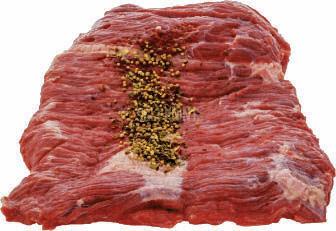










































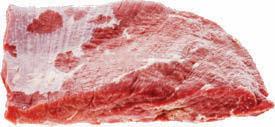







THE JEWISH STAR April 12, 2024 • 4 Nisan 5784 13 Keilim Mikveh on Premises | Pre-Shabbos Buffet Every Thursday & Friday! Savings Plaza | 11 Lawrence Lane, Lawrence, NY | (516) 371-6200 | info@kolsavemarket.com | /kolsavemarket Hours: Sunday-Tuesday: 7am-8pm | Wednesday: 7am-10pm | Thursday: 7am-11pm | Friday: 7am-2 hours before Shabbos TM We reserve the right to limit quan��es. No rain checks. Not responsible for typographical errors. More for Less much Prices Good Sunday, April 14th through Friday, April 19th, 2024 SIGN UP TO RECEIVE OUR WEEKLY SPECIALS AT KOLSAVEMARKET.COM! Avenue A Flour All Purpose or Unbleached 99 5 LB Pink Grapefruit 5/$4 Case GPOD Potatoes $2099 EA Minute Roast $699 LB Ground Beef $499 LB Chicken Bones 89¢ LB Mehadrin Corned Beef Deckle 649 LB Beef Flanken $1399 LB Rack of Ribs $999 LB Dark Chicken Cutlets $599 LB Chicken Wings 99¢ LB Chicken Legs $199 LB White Turkey Roast $499 LB We Will be Carrying Our Full Line of Chometz through Shabbos Hagadol, April 19 We Will be Carrying a Wide Assortment of KFP Products Beginning Sunday April 21 Wishing Our Customers a Happy Passover! Large Navel Oranges 4/$3 Small Kolichel $649 LB Ossie’s 4 oz Nova $599 EA Beef Stew $579 LB Frozen Tuna Steaks 999 LB Boneless Rib Roast In Original Vacuum Seal $649 LB *Unless Label Specifies Otherwise All of Our Meats are Chasidishe Shechita and Bet Yosef Passover Chocolate Raisins $749 14 oz Passover Roasted Almonds $499LB Whole Brisket $599 LB Silver Tip Roast $649 LB Chicken Cutlets $499 LB Beef Deckle $799 LB Boneless Rib Eye Steak $899 LB Avenue A Flour All Purpose or Unbleached 99 5 LB Chuck Eye Roast $599 LB 10 lb Bag Spanish Onions $799 EA Ground Beef Chicken Mix Super Family Pack $399 LB Top of the Rib $799 LB Pastrami 2nd Cut Brisket $699 LB Corned Beef 2nd Cut Brisket 699 LB Boneless Flanken $899 LB Boneless Fillet Steak $899 LB Shoulder London Broil $649 LB Lamb Shanks $799 LB Chicken Drums�cks $229 LB We Carry Veal Upon Request: WhatsApp 516-761-0314 or Email You Meat Orders to butcher@kolsave.com 1250643
LIer publishes guide to ‘Essential Torah Words’
A few years after publishing “Ten Times Chai: 180 Orthodox Synagogues of New York City,” featuring 613 photos of the interiors of existing Orthodox synagogues in the five boroughs, Michael J. Weinstein received a note from a friend with the words “mitzvah goreret mitzvah,” and had to Google the meaning, “one mitzvah leads to the next.”
Sixty-year-old Weinstein, a baal teshuva from Long Island, started keeping a list with that phrase being the first. As he stepped up his learning from Torah related books, he expanded his list to create an A to Z glossary of words, names and phrases from the Torah.
During the same time, he researched his family tree and discov-
It’s
that
Continued from page 11

ered that his great-great-grandfather, Mordechai Weiss, was a melamed, a teacher of Hebrew language and traditions, in a cheder in Pidvolochys’k, a shtetl in Galicia (in today’s western Ukraine).
The list of words, names, and phrases expanded exponentially, and Weinstein created a “glossary of glossaries” for himself to learn as he worked as a financial adviser and investments director at Oppenheimer & Co.
Using only Torah-related books, he compiled an extensive list, and recently published “Essential Torah Words, Names, and Phrases.”
In the introduction Weinstein writes, “My list is obviously incomplete and entirely subjective for what I considered ‘essential.’ For some readers
my list might be considered ‘voluminous’ and for others, just a mere drop of water in the vast ocean of Torah literature. However, if it can help one or more Jews connect to Torah, then G-d willing, I will have completed my task.”
The book is intended for anyone, at any age and level of observance. The 88 books in the bibliography as well as the 88 Torah-related websites in the book can be used as a springboard for further learning.
He included the 23 haskamahs, letters of approbation, he received from rabbis, many of them who serve as rosh yeshivas. (Weinstein feels there is no coincidence that he received 23 letters, because 23 was the number of Holocaust Survivors to whom he dedicated his first book.)
Rabbi Eytan Feiner of the White Shul in Far Rockaway wrote that “Michael’s remarkable journey continues, and we are now the beneficiaries of his admirable diligence and incessant dedication.”
The book is dedicated to Weinstein’s great-great-grandfather who the author believes is looking down from Shamayim and saying “yasher koach.”
Photos of Jerusalem, used to separate one letter of the alphabet from the next, were taken by Weinstein during a trip to Israel in 2022. This 556-page book is available on Amazon.com and at Jewish bookstores including Judaica Plus in Cedarhurst and West Side Judaica on the Upper West Side.
time again! (to use up the chametz)…
black or any combination, more if you like
• 1/4 cup fresh chives or scallions, snipped
• Any fresh herbs you like
• Any herbs and spices you like such as chili powder, cumin, coriander, za’atar, fresh tarragon, chives, garlic, shallots, etc. Use the spices your family members like
• Salt and pepper to taste
OPTIONAL: Diced red and/or green bell peppers Minced jalapeno pepper
OPTIONAL: Raisins and/or other diced dried fruit such as apricots, figs and dates
Generously grease a glass or ceramic 3-quart baking dish. Set aside.
Preheat the oven to 350 degrees.
Wash the leeks and slice them in half lengthwise. Cut each half in thin, half-moon slices, and break them apart if they stick together. Place in a bowl of ice cold water and swish vigorously to clean. Let the water settle and remove the leeks to a colander. Discard the water, rinse the leeks and shake a bit to dry. Set aside.
Cut the onions in half and thinly slice them into half-moon slices. Break them apart also. Clean and slice the mushrooms.
Finely mince the garlic. Dice any peppers you are using, and, if using, finely mince the jalapeno pepper. Drain the beans.
Heat a large frying pan and add the oil. Add the leeks and onions and sauté until just lightly golden. If using, add the peppers now. Add the mushrooms and cook until the mushrooms give off their juices and the juices just begin to evaporate. Add the garlic and mix well. Remove from heat. Add dried fruits if using. Mix and set aside.
Meanwhile, parboil the different kinds of rice in different pots until each is about halfway cooked. Brown and wild rice will take longer than any kind of white rice. Drain well. Mix the onion-mushroom mixture with the rice. Add the beans and the minced chives and season with salt and pepper, to taste. Pour into the casserole dish and spread evenly.
Add the water or stock to the pan in which the mushrooms were cooked and heat just to boiling to deglaze and get up any bits of remaining onion, garlic and mushroom. Pour the liquid carefully over the rice and cover the pan with aluminum foil. Bake at 350 for about 45 minutes, checking several times to make sure that there is enough liquid. Add more boiling liquid, if needed. Uncover to brown for the last 5 to 10 minutes of cooking. Serves 8 to 12.
Break-Apart Bread with Cheddar and Jack Cheese (Dairy)
Let the kids help on this one. Even the younger ones can roll the dough into the small

balls. You can add some whole wheat flour, but not too much or the bread will be too heavy.
• 6 to 7 cups unbleached white flour
• 2 Tbsp. sugar
• 2 tsp. salt
• 2 packages yeast
• 1-3/4 cups milk
• 1/2 cup water
• 3 to 4 Tbsp. butter
• 1-1/2 cup mixture of shredded cheddar,
Shredded Parmesan and Monterey Jack cheese or any cheese you have on hand except Mozzarella.
• Additional 1/2 cup melted butter
OPTIONAL: Any seeds you may have like sesame, poppy, Everything, sunflower, etc.
Mix 2 cups of the flour, sugar, salt and yeast in a large bowl of an electric mixer. Heat the water, milk and butter in a saucepan over low heat, until it is very warm, about 120 to 130

degrees. Do not let it boil.
Pour slowly into the dry ingredients and turn on the mixer to a very slow speed. Mix until all ingredients are incorporated, scraping down bowl as needed. Then turn on speed to high and beat for 2 minutes. Reduce the speed to low and add one cup of flour and beat on high for another two minutes. Reduce speed and add another cup of flour beating well after addition. Add the cheeses and beat until incorporated.
Add the rest of the flour, one cup at a time and, when the dough seems stiff, turn it out onto a clean, floured surface. Knead for 8 to 10 minutes, until the dough is smooth. Place in a greased bowl, turning the dough so the greased side is up. Cover and set in a warm spot for about 1 hour, until doubled in bulk.
Thoroughly grease a 10-inch tube pan and set the oven temperature to 375 degrees. Punch the dough down and break into 20 to 30 equal pieces. Roll each piece into a ball and place half of them into the pan. Brush the dough with melted butter and add the rest of the balls of dough. Brush with more melted butter, cover and set in a warm spot to rise for another hour.
Bake at 375 degrees for about 40 to 50 minutes, until golden brown. Cool and remove from pan. Dough will pull apart.
Optional: Brush the top of the first layer of dough with one egg yolk mixed with 1 tablespoon of water. Then sprinkle with some seeds over the dough balls. Repeat on top, and bake as directed. Serves 6 to 12.
April 12, 2024 • 4 Nisan 5784 THE JEWISH STAR 14
The reappearing ghost of the Goldstone Report
THANE

AUnited Nations fact-finding mission, charged with investigating Israel’s war against Hamas, concluded in a widely disseminated and exploited report that the Israel Defense Forces deliberately targets Palestinian civilians.
Not surprisingly, the report failed to condemn Hamas for sacrificing its own people as human shields or for indiscriminately launching rockets at Israeli civilian population centers — both indisputable war crimes and violations of international humanitarian law.
A feeling of déjà vu is unavoidable. The investigation, known as the Goldstone Report, dates back to 2009, after an earlier war in which Israel was forced to enter the moral morass of Hamas’ strategy, where there can be no victory without large numbers of dead Palestinians.
The UN’s Human Rights Council ordered the investigation and selected a former South African high court judge, and war crimes prosecutor, Richard Goldstone, to head the mission.
Goldstone is Jewish, which no doubt added moral weight to the report’s scandalous accusations against the Jewish state. Several years later, however, after analyzing Israel’s own exhaustive inquiry, Goldstone recanted the most damning factual conclusions about the IDF. He acknowledged that he may have rushed to judgment on the charge of targeting civilians.
Of course, the damage had already been done. People still remember the Goldstone Report. The Goldstone Recantation never caught on.
Years later, when one of Goldstone’s grandchildren was having his bar mitzvah in Jerusalem, Goldstone was denied entry into the

country — probably the only Jew for whom aliyah no longer applied. I hope the same thing happens one day to Bernie Sanders and Chuck Schumer.
Atragic military mistake occurred last week when seven humanitarian aid workers were accidentally killed by Israeli airstrikes. Drone operatives believed that a three-car convoy was carrying a Hamas commander. No such high-value target was in any of the vehicles, regrettably.
These were American civilians with no terrorists in sight.
Feeling the political pressure, President Biden read the Riot Act to Prime Minister Netanyahu — specifically, be more precise in your targets, use the right weapons package, allow for more humanitarian aid, or we’ll stop rearming you.
Israel got the message, but it didn’t need the
lower cost homeowners insurance
let our team of experts design a much lower cost quality policy for you free quote
➤ commercial insurance policies
➤ life & disability insurance
➤ car insurance
➤ self employed health insurance
➤ long term care insurance
Rabbi S.M. Leiner, cLtc Independent Insurance broker
P.O. box 7655 at 600 Franklin Ave.
Garden city, ny. 11530
Moses10987@aol.com
917-543-0497
Attention: AFFLUENT Clients—Tax Free, Guaranteed, Return of FULL PREMIUM PAID, for CERTAIN Insurance Coverage.
public scolding. Jews are usually hard enough on themselves. A quick internal investigation followed (a more complete one is underway). Both Israel’s prime minister and IDF chief of staff apologized and took full responsibility. Two senior IDF officers were dismissed; three others were reprimanded. Investigations will continue, and criminal charges might be pursued.
Meanwhile, over 100 hostages sit in Gaza without the protections guaranteed by the Geneva Convention. Has Hamas apologized for beheading Israeli infants and gang-raping teenagers? Have they ever investigated their own “military” conduct?
Forget remorse. How about rewards for barbarism?
Palestinians who commit acts of terror receive lavish monthly stipends and a guaranteed government job if they are ever released from
prison. Should they die a martyr, their parents receive death benefits for steering their children toward terrorism as a career path. Public parks and street signs are named in their memory.
But in the wake of last week’s event, don’t be surprised if a Goldstone Report sequel is already underway, or if its conclusions blame Israel entirely.
Back in 2009, the world seethed at the disproportionate body count, otherwise known as collateral damage. Today “collateral damage” isn’t damning enough. The same casualties of war, now, are designated victims of “genocide.”
Hamas instigates these wars, and then wages them among its own people. In each of these encounters, the number of dead civilians is actually unknown. Gaza’s Health Ministry is notorious for inflating the overall numbers, and discounting the number of terrorists among the dead.
To call this a genocide when the overall Palestinian population has more than doubled since 1967 is an insult to all peoples decimated by actual genocides. It is yet another blood libel against Jews.
And Biden is buying it — with consequences for Israel. Ayatollahs who just threatened the Jewish state are sitting pretty on their Persian rugs, knowing that Israel was browbeaten by its American patron.
No army — especially not one that goes to great lengths to provide warnings, reveal targets and create humanitarian corridors — has ever been expected to endure this kind of armchair quarterbacking. This is not the same United States that on Oct. 8 blamed anticipated civilian casualties on Hamas and happily resupplied Israel’s military stockpile.
This is an America without moral clarity, interfering with the military judgment of generals who know the moral logic of the Middle East better than anyone. Most everyone agrees that the world is better off without Hamas. Step aside then, and allow Israel to finish the job.
DESK of RABBI S.M. LEINER- INSURANCE BROKER
917-543-0497
Note the ACCOLADES from our CLIENTS
RE: SYNAGOGUES and YESHIVOS
Dear Rabbi Leiner, Thank you for replacing the Insurance for our Synagogue, with a Savings of almost 50%.
B.F. Executive Director
RE: REAL ESTATE CORPORATION
Dear Rabbi Leiner, You and Your Experts, have saved our Corp. Very Substantial Sums, with your Quality Insurance Replacement on our Real Estate Buildings. Thank you, M.B. Pres.
RE: HOMEOWNERS INSURANCE
Dear Rabbi Leiner, Our Insurance Company Refused to renew our Insurance Homeowners Policy. However, You and Your Experts were able to Secure for us other Insurance Coverage, even at a much lower Premium, than the Prior Canceled Insurance Policy. Thank You So Much. Mrs. D.S.
Richard Goldstone during a meeting of the UN Human Rights Council in September 2009. UN Photo, Jean-Marc Ferré
ROSENBAUM Distinguished University Professor Touro College THE JEWISH STAR April 12, 2024 • 4 Nisan 5784 15 1252770
jewish star torah columnists:
•Rabbi Avi Billet of Anshei Chesed, Boynton Beach, FL, mohel and Five Towns native •Rabbi David Etengoff of Magen David Yeshivah, Brooklyn
•Rabbi Binny Freedman, rosh yeshiva of Orayta, Jerusalem
contributing writers:
•Rabbi Sir Jonathan Sacks zt”l,
former chief rabbi of United Hebrew Congregations of the British Commonwealth •Rabbi Dr. Tzvi Hersh
Weinreb, OU executive VP emeritus
•Rabbi Raymond Apple, emeritus rabbi, Great Synagogue of Sydney
•Rabbi Yossy Goldman, life rabbi emeritus, Sydenham Shul, Johannesburg and president of the South African Rabbinical Association.
contact our columnists at: Publisher@TheJewishStar.com
Five towns candlelighting: From the White Shul, Far Rockaway, NY
תבש לש בכוכ
Fri April 12 / Nisan 4
Tazria Candles: 7:13 • Havdalah: 8:23
Fri April 19 / Nisan 11
Shabbos HaGadol • Metzora Candles: 7:21 • Havdalah: 8:31
Mon April 22 / Nisan 14
Erev Pesach • First Seder Candles: 7:24
Tue April 23 / Nisan 15
Second Seder Candles: 8:25 • Wed Havdalah: 8:35
Fri April 26 / Nisan 18
Shabbos Chol Hamoed Candles: 7:28 • Havdalah: 8:38
Sun April 28 / Nisan 20
Erev Yom Tov Candles: 7:30
Othello, WikiLeaks, Mildewed Walls and Jews
rabbi sir
jonathan sacks zt”l

It was the Septuagint, the early Greek translation of the Hebrew Bible, that translated tsara’at, the condition whose identification and cleansing occupies much of Tazria and Metzora as “lepra,” giving rise to a long tradition identifying it with leprosy.
That tradition is now widely acknowledged to be incorrect. First, the condition described in the Torah simply does not fit the symptoms of leprosy. Second, the Torah applies it not only to various skin conditions but also to mildew on clothes and the walls of houses, which certainly rules out any known disease. The Rambam puts it best:
Tsara’at is a comprehensive term covering a number of dissimilar conditions. Thus whiteness in a person’s skin is called tsara’at. The falling off of some of his hair on the head or the chin is called tsara’at. A change of color in garments or in houses is called tsara’at. Hilchot Tumat Tsara’at 16:10
Seeking to identify the nature of the phenomenon, the Sages sought for clues elsewhere in the Torah and found them readily available. Miriam was smitten by tsara’at for speaking badly about her brother Moses (Num. 12:10). The Torah later gives special emphasis to this event, seeing in it a warning for all generations: Be careful with regard to the plague of tsara’at. … Remember what the L-rd your G-d did to Miriam along the way after you came out of Egypt. Deut. 24:8-9
It was, in other words, no normal phenomenon but a specific Divine punishment for lashon hara, evil speech. The Rabbis drew attention to the verbal similarity between metzora, a person afflicted by the condition, and motzi shem ra, someone guilty of slander.
Rambam, on the basis of rabbinic traditions, gives a brilliant account of why tsara’at afflicted both inanimate objects like walls and clothes, and human beings: It [tsara’at] was a sign and wonder among the Israelites to warn them against slanderous speaking. For if a man uttered slander, the walls of his house would suffer a change. If he repented, the house would again become clean. But if he continued in his
Shakespeare’s Othello makes it clear how much evil speech lives in the dark corners of suspicion.

wickedness until the house was torn down, leather objects in his house on which he sat or lay would suffer a change. If he repented they would again become clean. But if he continued in his wickedness until they were burned, the garments which he wore would suffer a change. If he repented they would again become clean. But if he continued in his wickedness until they were burned, his skin would suffer a change and he would become infected by tsara’at and be set apart and alone until he no more engaged in the conversation of the wicked which is scoffing and slander. Hilchot Tumat Tsara’at 16:10
The most compelling illustration of what the tradition is speaking about when it talks of the gravity of motzi shem ra, slander, and lashon hara, evil speech, is Shakespeare’s tragedy Othello.
Iago, a high ranking soldier, is bitterly resentful of Othello, a Moorish general in the army of Venice. Othello has promoted a younger man, Cassio, over the more experienced Iago, who is determined to take revenge. He does so in a prolonged and vicious campaign, which involves among other things tricking Othello into the suspicion that his wife, Desdemona, is having an adulterous affair with Cassio. Othello asks Iago to kill Cassio, and he himself kills Desdemona, smothering her in
her bed. Emilia, Iago’s wife and Desdemona’s attendant, discovers her mistress dead and as Othello explains why he has killed her, realizes the nature of her husband’s plot and exposes it. Othello, in guilt and grief, commits suicide, while Iago is arrested and taken to be tortured and possibly executed.
It is a play entirely about the evil of slander and suspicion, and portrays literally what the Sages said figuratively:
Evil speech kills three people: the one who says it, the one who listens to it, and the one about whom it is said. Arachin 15b
Shakespeare’s tragedy makes it painfully clear how much evil speech lives in the dark corners of suspicion. Had the others known what Iago was saying to stir up fear and distrust, the facts might have become known and the tragedy averted. As it was, he was able to mislead the various characters, playing on their emotional weaknesses, distrust and envy, getting each to believe the worst about one another. It ends in serial bloodshed and disaster.
Hence the poetic justice Jewish tradition attributes to one of the least poetic of biblical passages, the laws relating to skin diseases and mildew. The slanderer spreads his lies in private,
but his evil is exposed in public. First the walls of his house proclaim his sin, then the leather objects on which he sits, then his clothes, and eventually his skin itself. He is condemned to the humiliation of isolation:
“Unclean! Unclean!” he must call out. … Since he is unclean, he must remain alone, and his place shall be outside the camp. Lev. 13:45-46
Said the Rabbis: Because his words separated husband from wife and brother from brother, his punishment is that he is separated from human contact and made an outcast from society. Arachin 16b
At its highest, WikiLeaks aims at being today’s functional equivalent of the law of the metzora — an attempt to make public the discreditable things people do and say in private.
The Sages said about evil speech that it was as bad as idolatry, incest, and murder combined, and it was Shakespeare’s genius to show us one dramatic way in which it can contaminate human relationships, turning people against one another with tragic consequences.
Never say or do in private what you would be ashamed to read about on the front page of tomorrow’s newspapers. That is the basic theme of the law of tsara’at, updated to today.
April 12, 2024 • 4 Nisan 5784 THE JEWISH STAR 16
Imagine! Freeing our minds, freeing ourselves
Rabbi
DR. tzvi heRsh weinReb Orthodox Union

There was a time when I would only go out of my way to listen to speakers who were older and more experienced than I. Recently, however, I changed my preferences and began to seek out rabbis and teachers who are young and relatively inexperienced, finding their ideas fresh and often very much on the mark.
During a visit to Israel, I sat in on a series of lectures designed to prepare the audience for
the upcoming Passover holiday. The speaker, a brilliant young rabbi, spent most of his opening lecture elaborating upon what he considered the most difficult task with which we are all confronted on the first night of Pesach, a task described in the following famous passage:
In each and every generation, a person must see himself as if he personally left Egypt. As it is written, “And you shall explain to your son on that day that it is because of what the Lord did for me when I went free from Egypt” (Exodus 13:8).
The requirement is explicit in the biblical text: “The L-rd did it for me, when I went free from Egypt.”
The young rabbi candidly confessed to his audience that he had never been able to fulfill
this requirement. Indeed, he didn’t think it was possible, certainly not for most of us, to envision ourselves as if we personally had experienced slavery and redemption.
“This,” he insisted, “is the most difficult task we are faced with on the Seder night.”
Ifound this assertion to be quite provocative, attributing his conviction to his relative immaturity. I have never found this obligation difficult. I have found it quite easy to imagine myself as a slave and to personally exult in the emotional experiences of redemption and freedom.
However, I could not rid my mind of the young rabbi’s statement. I began to question my own inner certainty. Had it really been so easy for me all these years to envision myself as one
of those who had experienced both slavery and the Exodus?
In the midst of my extended preoccupation with the young rabbi’s assertion, a long-forgotten memory surfaced. I was taken back to another pre-Pesach lecture when the speaker was not a young rabbi but an old and revered Chassidic rebbe, a survivor of the Holocaust who had spent years in Auschwitz and had witnessed the vicious murder of his wife and children with his own eyes.
That old rebbe was Rabbi Yekutiel Yehudah Halberstam, may his memory be blessed, who was known as the Klausenberger Rebbe, after the small town in the Balkans where he had served prior to World War II.
See Weinreb on page 22
Of bald men, bearded ladies, and Parsha Tazria
Parsha of the week
Rabbi avi billet
Jewish Star columnist
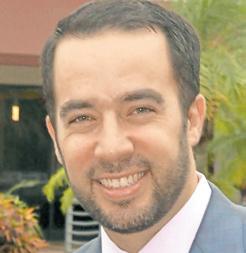
Icreated a program several years ago called ParshaDrama, in which I go to a school and present the weekly Torah portion to different grades through a combination of storytelling and dramatics, playing the roles of the various characters while sometimes calling up students to assist when there are multiple characters in the Torah’s storyline.
For Parsha Tazria, I typically call up volunteers in order to “point out” the kinds of blemish-
es that are described in the parsha, accompanied by an explanation of the process the person will now have to endure in order to be deemed tahor again.
Since I mostly deal with younger grades, I am often in a co-ed school with boys and girls together.
On one such visit, immediately after presenting the parsha about the dedication of the Mishkan and the role of Aharon and his sons — including the deaths of Nadav and Avihu, — one girl, who is in first or second-grade, asked me why I don’t include girls in the story. After accepting her critique, I told her I am unaware of Aharon having daughters. And I reminded her (with a smile … I was very nice) there are many “girls” in the stories in Bereshit, even if they are
not as prominent as the “boys.”
I pick the girl volunteers to demonstrate many of the tzara’at afflictions in our parsha, or for a unisex discussion about law in Mishpatim, as well as anytime I specifically need someone with a beard (e.g. some kohen situations in parshat Emor), because many of the girls are adept at bringing their ponytails round to front and tying them under their chins.
It is an interesting point of note that the only person recorded by the Torah to have been afflicted with tzara’at is a woman (Miriam, in Bamidbar 13). It does not follow that tzara’at is a women’s disease any more than a men’s disease, as we encounter other metzo’ra’im (tzara’at inflicted individuals) in the rest of the Bible who are men as well.
Our parsha this week begins talking about the status of a woman who “has seed” and gives birth to a boy, or who gives birth to a girl. And while the parsha talks primarily about the generic “Adam” (human, male or female) who gets tzara’at, the Torah specifically mentions “a man or a woman” who have a nega (mark) on the head or on the beard (13:29).
Is the Torah addressing the circus and the bearded lady (some interesting ladies have embraced their genetic disorder that causes facial hair to grow … it’s amazing what you can find on Google)?
Rashi explains this strange language to mean that the Torah is distinguishing between tzara’at that occurs on hairy spots versus tzara’at that
See Billet on page 22
As Pesach nears, discovering our tradition anew
Kosher bookworm
alan Jay GeRbeR Jewish Star columnist

With the onset of Pesach, I find the study of the historical and philosophical side of our religious tradition to be of great inspiration in getting myself into the “holiday mood.” Thus, this week’s essay will focus on two works by Rabbi Dov Lipman that should help assist many in getting into this holiday mood.
The spiritual quest that Rabbi Lipman focuses on in his works, “Discover” (Feldheim, 2006) and “Seder Savvy: Insights for Meaningful Family Discussions” (Targum Press, 2010) describe in eloquent and intelligent terms the basic elements that make up the beliefs of our sacred tradition.

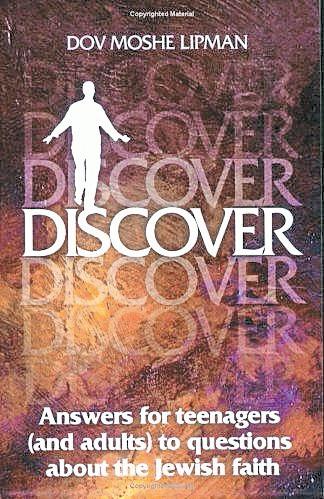
“Discover” goes to the heart of our tradition by dealing, in great detail, with such topics as Torah MiSinai, Torah She’baal Peh, the purpose of Creation, and the role of prayer and study. Some profound and heartfelt teachings are found in his essays on Women in Judaism, Suffering and

Tragedies, Death, the Resurrection of the Dead, and the coming of Moshiach.
In his personal approbation to this work, Rabbi Aharon Feldman, Rosh Yeshiva of Ner Yisrael, wrote the following:
“The Torah and Judaism proclaim that man is successful if he accepts the dominion of G-d and makes his life an expression of His will. This stands in stark contrast to much of modern culture whose premise is that human autonomy is the ultimate good and that man’s success lies in the fulfillment of his fantasies of power and pleasure.
“A student in a modern day yeshiva high school is constantly — consciously or sub-consciously — faced with this conflict of view. He needs to understand why he should accept upon himself the way of the Torah and why it is superior to the lifestyle he sees in the world around him.
“Rabbi Dov Lipman, who has spent many years teaching these students, has produced a modern ‘Guide for the Perplexed’ for them. He explains why Jews must believe in Torah, and skillfully addresses many of the issues confronting a modern student.”
Rabbi Lipman notes the valued role that his Rosh Yeshiva, Rabbi Yaakov Weinberg, zt”l, played in influencing his teachings and writings.
“The Rosh Yeshiva’s approach to learning, thinking and looking at the world impacted me greatly. His advice and answers to my many questions gave me direction in life. … The Rosh
See Gerber on page 22
Rejecting ga’avah for majesty of Hashem’s geut
torah
Rabbi DaviD
etenGoff
Jewish Star columnist
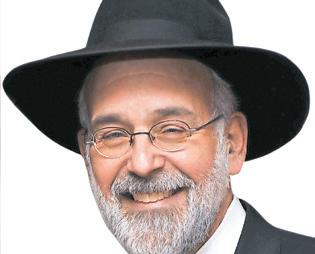
The primary focus of our parasha, Tazria, is the illness known as tzaraat. In his commentary on the Torah, the Rashbam presents the unique nature of this disease:
All of the sections dealing with the negayim (afflictions) affecting people, garments, houses, and the manner in which they appear as well as the number of days requiring sequestering, the white, black, and golden identifying hairs — cannot be understood by following the simple and direct meaning of the text.
In the Rashbam’s view, tzaraat can be understood solely from the Torah’s standpoint, rather
than from a physiological or medical perspective. This is because its etiology does not follow the normative laws of biology. Instead, it is a spiritually-based ailment that manifests in a physical fashion.
The Torah presents us with three types of tzaraat: “If a man has a se’et, a sapahat, or a baheret on the skin of his flesh, and it forms a lesion of tzaraat on the skin of his flesh, he shall be brought to Aharon the Kohen, or to one of his sons, the Kohanim.”
Midrash Vayikra Rabbah, Tazria 15:9, identifies each of these categories as metaphorically representing one of the ancient nations who either violently injured or sought to harm our people. Thus, se’et (a rising) is Babylonia, sapahat (a scab) is the kingdom of the Medes, and baharet (a bright spot) is Greece.
Our midrash notes that Haman, who attempted to eradicate our people, was the most infa-
mous member of the ancient Medes: [The kingdom of the] Medes raised Haman the wicked, who crawled like a snake, as it is written, “On your belly you shall go.”
The Rav builds upon our midrash and says Haman “slithered like a snake but was puffed up with arrogance. A fawning personality, he lacked dignity. His sycophantic behavior resulted in his becoming prime minister to King Ahashverosh. Yet, Haman was no leader. A weak and spineless man, he used flattery to get ahead. Thinking that it would save his life, he behaved in a servile manner toward Esther even after she exposed him. Like other haughty people, he did not realize how base he was, that he was actually a form of sapahat.”
In the Rav’s view, the haughty and arrogant Haman emerges as a base and slithering being who lacked all manner of dignity to the extent that “he was actually a form of sapahat.”
What does it mean for a person to be “a form of sapahat,” to be a scab on the body of humanity in general, and an enemy of the Jewish people in particular?
The Rav indirectly addresses this question in his analysis of those who demonstrate ga’avah (arrogant pretentiousness) and pursue kavode (false honor):
If, however, one pursues these qualities, then they are false and reprehensible. This is particularly the case if one actively deceives himself and pretends to be someone other than who he really is. … The greatest falsehood takes place when a person lies to himself.
Haman is the ultimate example of an individual who “actively deceives himself and pretends to be someone other than who he really is.” He convinced himself that he had geut (grandeur), when in fact, he was merely “puffed up with arrogance”
See Etengoff on page 22
THE JEWISH STAR April 12, 2024 • 4 Nisan 5784 17
We must not let Biden grant victory to Hamas
JonAtHAn S. tobin JnS Editor-in-Chief

Perhaps Prime Minister Benjamin Netanyahu wasn’t blowing smoke. After the announcement of a withdrawal of Israel Defense Forces troops from southern Gaza, he pledged that a date had been set for an offensive into Rafah to complete the job of destroying Hamas’s last remaining active military units. If true, that would mean the assumption that the Israeli retreat from Gaza signaled the end for all intents and purposes of the war that Hamas began on Oct. 7 was, at best, premature.
As the six-month anniversary of the Hamas attacks on Israel was marked this past weekend with remembrances of the fallen, as well as prayers and demands for the release of the more than 100 hostages still held by Hamas, Israeli optimism about the ultimate outcome of the conflict was hard to maintain. Indeed, contrary to Netanyahu’s words, the Biden administration’s opposition to further efforts to defeat Hamas has forced Israel’s government to back down and accept what appears to be a ceasefire with the current leadership of the terrorist organization without a single hostage being released, then the current situation must be judged to be an unprecedented disaster for the Jewish state.
While Israel’s armed foes and their antisemitic allies throughout the world may have reason to celebrate these events, the outcome of this conflict is not yet decided. Israel’s armed forces have already achieved a great deal in its effort to degrade Hamas’s military capabilities and destroy much of its underground fortress system, and can, given more time, finish the job.
Moreover, it’s hard to believe that Netanyahu or anyone tasked with leading the Jewish state will accept an outcome in which it not only suffered the worst mass slaughter of Jews since the
US threats have given genocidal terrorists a respite
Holocaust but then allowed those pledged to its destruction to defeat it through international pressure and a propaganda campaign.
An honest assessment of events that have transpired these last six months must deem them among the most awful in modern Jewish history. And while it’s easy to get lost in the details of military, political and diplomatic problems, the world should never lose sight of the one element that explains the virulence of Hamas’s murder campaign and indifference to Israel’s rights and security: antisemitism.
If the first six months of the war have been filled with disappointments and mistakes, what follows need not be a disastrous conclusion to the conflict. The Israel-haters have hypocritically helped convince liberals in the United States to oppose the continuation of the war; however, efforts to counteract these lies and build support for Israeli victory loom greater than ever.
A foolish bid for sympathy
The war that began with the Hamas rampage of murder, rape, torture, kidnapping and wanton destruction on Oct. 7 dealt a cruel blow to Israel’s ability to deter its foes. Rather than inspiring sympathy from the rest of the world for the IDF’s efforts to ensure that these crimes would never again be committed, the spectacle of Jewish suffering did the opposite.
Even before the counteroffensive into Gaza to take down the Oct. 7 murderers began, worldwide media and the leftist-dominated chattering classes had flipped the script about the conflict to treat the Palestinians, who were the perpetrators of unspeakable crimes as the real victims of the war, and the Israeli victims as criminal violators of human rights.
Hamas lies about “indiscriminate” and “disproportionate” Israeli bombings and Palestinian casualties being almost solely women and children were not just believed but treated as truthful by a biased press. It even turned around the Biden administration, members of which think that the president might lose his re-election chances in certain swing states because he was insufficiently hostile to the Jewish state.
Just as ominously, throughout the West — and most particularly, in the United States — antisemitic mobs in the streets of cities and on college campuses helped normalize calls for Israel’s destruction and terrorism against Jews in public discourse. Even in a country where, in contrast to Europe, support for Israel is still strong and where official antisemitism has been unknown, Jews are starting to feel increasingly unsafe.
While hostage negotiations continue, President Joe Biden’s pressure campaign has removed all incentive for Hamas to budge an inch from its ransom demands that not only include a massive release of terrorist prisoners held by Israel but

also an end to the war. Moreover, should the conflict that began on Oct. 7 conclude with Hamas still in possession of any part of Gaza — and with an active, if heavily damaged, military force still intact — then Palestinians, their enablers and fellow travelers abroad, not to mention their Iranian funders, will rightly consider them to be the victors of the war.
The consequences of such a turn of events for Israel are unthinkable. Hamas’s goals remain the destruction of Israel and the genocide of its population.
Ever since the massacres on that Black Shabbat, the prime minister has been telling his country and the world that Israel would not stop until the Islamist group was decisively and completely defeated. But six months into the conflict, that goal has not been achieved. It’s now apparent that the United States — Israel’s main ally, and principal source of the arms and ammunition — has no intention of letting Hamas be defeated.
American threats
While the current withdrawal of forces is being represented by Israel’s government as merely an effort to regroup and prepare the IDF for the final battle in Gaza, it’s impossible to ignore the underlying context. Biden’s gradual pivot away from his position of strong support for Israel and for the elimination of Hamas after Oct. 7 culminated in the threats he issued to Netanyahu last week in a phone call. The administration let it be known that Biden said if Israel attacked Hamas in Rafah, then he would withhold further mili-
tary aid. What’s more, it soon became clear that Biden’s foreign-policy team was also making it clear that it would not veto efforts in the U.N. Security Council to pass a binding ceasefire resolution or to grant recognition of Palestinian statehood.
These are not the sort of threats that any Israeli government can ignore or take lightly. Israel depends on U.S. arms to maintain its ability to deter or defeat the forces that seek its destruction. Most Israelis still ignore the United Nations as an irrelevant talking shop. But a binding ceasefire and formal recognition of Palestinian statehood would set in motion a series of events that could make the antisemitic fantasy of transforming the democratic Jewish state into a pariah state shunned and sanctioned by the entire world into reality.
There are reasons to believe that — after a pause of undetermined length — Netanyahu still hopes to make good on his promises. The IDF is reportedly preparing to provide a way for the Palestinians living in the remaining Hamas stronghold a path to escape the fighting and then resume the offensive. But for the moment, the achievement of Israel’s post-Oct. 7 war aims — the total defeat of Hamas and the release of all of the Israeli hostages it holds — are beyond its reach.
There’s plenty of blame to go around for the mistakes that led to this situation. Nevertheless, the main priority for friends of Israel now is to not succumb to recriminations or despair. The Israeli people will ultimately decide whether and when Netanyahu as well as the country’s military and establishment will be held accountable for Oct. 7. And history will determine whether or not Israel’s post-Oct. 7 military campaign was conducted as well as it could have been.
But for now, the priority for both Israelis and Americans who care about the Jewish state must be to loudly and ceaselessly speak about the consequences of letting Hamas emerge triumphant from the fighting.
What Hamas wants
The chattering classes in the United States and their acceptance of the Hamas narrative about Palestinian suffering have helped generate the anger at Israel that pushed Biden to pressure Netanyahu. The influence of leftist woke ideologies on American discourse, which falsely brands Israel as a “white” oppressor populated by “settler/ colonialists,” played a key role in enabling this to happen.
Many in the pro-Israel community thought they could ward off such an outcome by speaking solely of the suffering of the Israeli hostages or trying to remind the world about the truth of what happened. The hostages shouldn’t be forgotten and Biden’s abandonment of them, in-
See Tobin on page 22
April 12, 2024 • 4 Nisan 5784 THE JEWISH STAR 18
An Israeli military tank at the border with Gaza on April 7. Chaim Goldberg, Flash90
as
Israel
enable antisemitism. But the
isn’t over yet. Jewish Star Associate: Nechama Bluth, 516-622-7461 ext 241. Content: The Publisher endeavors to ensure that this newspaper’s content is within the bounds of normative halachah and hashkafah. Any reader who feels anything we publish may be inappropriate in this regard is urged to bring the item in question to the attention of the Publisher. Advertising is accepted at the sole discretion of the Publisher. The Publisher expects all advertising to conform to standards of content appropriate for distribution in an Orthodox community. Send us your news! News@TheJewishStar.com Advertising: Publisher@TheJewishStar.com Kashrut: The Jewish Star is not responsible for the kashrut of any product or establishment featured in its pages. If you have questions regarding any establishment or product, including its supervision, please consult your rabbi for guidance. Submissions: All submissions become the property of The Jewish Star and may be edited and used by the Publisher, its licensees and affiliates, in print, on the web and/or in any media that now exists or will exist in the future in any form, including derivative works, throughout the world in perpetuity, without additional Published weekly except during certain religious and civil holidays by The Jewish Star LLC New York City office: 5676 Riverdale Ave Suite 311, Bronx NY 10471 • LI office: 2 Endo Blvd, Garden City NY 11530 t heJewishStar.com Ed Weintrob, Editor and Publisher • EWeintrob@TheJewishStar.com • 516-622-7461 ext 291 nY’s trusted Jewish newspaper. Honest Reporting. torah-true. Kosher and Fat-Free. authorization or compensation. The individual or entity submitting material affirms that it holds the copyright or otherwise has the right to authorize its use in accordance with The Jewish Star’s terms for submissions. opinions: Views expressed by columnists and other writers do not necessarily reflect the position of the Publisher or of The Jewish Star LLC. Distribution: The Jewish Star is available free in kosher food establishments, stores, synagogues, and curb-side newsboxes on Long Island, in New York City and elsewhere. To request free delivery to your location, write Publisher@TheJewishStar.com. Copyright: All content is copyright and may not be republished or otherwise reproduced without written permission by The Jewish Star LLC; to do so without permission is against the law and halacha. For content reproduction write to Publisher@TheJewishStar.com. The Jewish Star subscribes to the JNS news service. It, or its contributors, own the copyrights on material attributed to them. The length and content of JNS material and all other submitted material may be edited by The Jewish Star. This newspaper contains words of Torah; please dispose of properly.
the media continues to demonize
and
war
Israel-bashing reviews are leaving a bad taste
Global Focus BEN COHEN

For several years now, my media consumption habits have been guided in part by what I call my “escape routes.”
As someone who spends his days immersed in reports and analysis of news events that are extraordinarily depressing — war and conflict in Europe and the Middle East, the inexorable rise of antisemitism and other forms of prejudice, the historical precedents for the difficult political questions we confront today and much else on similar lines — I need these escape routes for the good of my mental health.
They also remind me that while I’m paid for the privilege of writing and thinking about politics and international affairs, millions of people pursue careers and projects that have nothing to do with my concerns, which is precisely why I use the term “escape routes” when I read about their endeavors. They are a window onto the calmer and more leisurely world that exists out there, and my visits fortify me when I go back to the issues that matter to me both professionally and personally.
It’s why I read the sports pages, to monitor the teams I follow and read what the coaches and players are saying. It’s why I read music reviews, to check up on whether my favorite bands are in the studio or if they are touring, and hopefully, discover some new gems. It’s why I adore restaurant reviews, not just of establishments in the cities where I live or work but of eateries further afield.
This — all of this — is a harmless escape, a chance to read some decent writing that isn’t about politics, allowing me to return to my own writing feeling refreshed.
But I have to tell you, this method isn’t really working anymore.

In the last six months, since the Oct. 7 Hamas pogrom in southern Israel unleashed a war that has dominated the media, I’ve seen my escape routes pulled into my professional concerns.
The sports pages have been littered with reports of discrimination against Jewish athletes, such as the firing of South Africa’s U-19 cricket team captain because he is Jewish, or the refusal of the Irish women’s basketball team to stand respectfully for the “Hatikvah,” Israel’s national anthem, immediately prior to a contest in which, happily, they were trounced by their Israeli opponents.
Music has become a cesspool of artists, including some whose songs I love, with them signing up to various boycott initiatives targeting Israel alone, leaving cutting-edge Israeli acts — like the electronic duo Red Axes, whom I interviewed recently — feeling isolated and rejected.
And now, I’ve discovered that even restaurant reviews, of all things, are no longer immune from any mention, let alone criticism of, Israel’s mili-
tary actions in Gaza. The disapproval and the resentment are pervasive, seeping into the corners of websites and news outlets that would normally have no business discussing Israel and the Palestinians, or any other conflict (and, of course, they don’t tend to discuss those other conflicts.)
Over the last week, I’ve encountered two items on the food pages like this.
The first was the eagerly awaited New York Times list of the top 100 restaurants in the city. I clicked on that in order to see whether I’d visited any that made this year’s selection, as well as choose some of the establishments where I’d like to go. I didn’t think (because there was no reason to think) that the Gaza war would show up here, but it did.
The food critic at the Times, Pete Wells, classified one restaurant — Falafel Tanami, in the Midwood section of Brooklyn, at number 65 — as “Israeli.” In the accompanying paragraph describing the food, Wells didn’t mention the word “Israel” or talk about the conflict once.
Instead, he waxed lyrically about the quality of the falafel balls served there.
But that wasn’t the case with the restaurant that came in at number 74 — Ayat, an eatery that is also in Brooklyn that Wells classified as “Palestinian.” In this case, Wells used half of his allotted paragraph to tell us that its main location features a mural of “Palestinian children behind bars under the Aqsa Mosque, between the phrases ‘down with the occupation’ and ‘live in peace,’” adding that as “Ayat has multiplied locations, it has kept up its paired messages of peace and support for the people of Palestine.” I came away from reading that wondering whether the recommendation was for the food or for the politics.
Needless to say, none of the other cuisines emanating from countries that are also global trouble spots — Nigeria, Mexico and Korea, among them — warranted similar treatment.
After the Times, it was The Guardian. That paper, which is known for its harsh coverage of Israel, published a review last weekend of a nonkosher, Ashkenazi-style deli in North London by its food critic, Jay Rayner. I knew that Rayner was Jewish, in part because I’d seen some goodnatured joshing from some of his Jewish readers about his fondness for pork and seafood dishes. But that didn’t prepare me for what I read. Rayner did spend most of the review talking about the food, which he said he enjoyed, while noting that the chicken-soup broth needed more salt.
But then came the clincher: “Could I really write about a Jewish restaurant given the current political turmoil? Would I get abuse for doing so?” Rayner wrote. “Surely better to keep shtum. At which point I knew I had no choice: I had to write about it.
“The horrendous campaign of the government and armed forces of Israel in Gaza cannot be allowed to make being Jewish a source of shame.”
He proceeded to berate Israel for allegedly making “life for Jews who live outside Israel
It’s still an antisemitic mob, by any other name

In the aftermath of Oct. 7, Western cities have been inundated by loud, sometimes violent, masked zombie-like pro-Hamas mobs. They glue and chain themselves to roads and bridges; interrupt public events; storm museums, classrooms, churches and synagogues; and deface Israeli, Jewish and pro-Israel restaurants. And, of course, the mobs call for the death of the Jews and the extermination of Israel.
The sight of Jewish blood and the burned corpses of Jews seems to have enraptured and unleashed Jew-haters worldwide.
Many of these protestors are well-funded by the same sources that pay for the indoctrination of American professors, students, student organizations, the media and non-profits.
But there is another kind of harassment that academics and pro-Israel advocates and activists have been facing. It is more private and personal but equally invasive and invidious. We are being berated, bullied and condemned face-to-face or via email by other academics and activists, some of whom we’ve worked with for decades.
I do not seek to “talk” to those whose views I already know are profoundly anti-Zionist and antisemitic. I am too busy for such private and dinner table dialogues. I am careful not to poke the bear or the beehive. But since Oct. 7, longtime “comrades” have been unable to resist privately castigating me for my thought crimes. This is their own petty form of mob harassment.
One woman, a red-diaper baby I’ve known since 1971, began writing articles accusing Is-
rael of every imaginable crime. Apparently, she felt compelled to do so because of the articles I’ve been writing. I quietly removed her from my mailing list and, when she called, I told her that we could never discuss Israel or Judaism.
Then, I received an unsolicited email from a longtime colleague. She asked whether I had lost my mind or was misinformed due to my support for Israel and the IDF. “Would [I] object to removing Netanyahu so that a two-state solution could be achieved?” she demanded to know.
My otherwise worthy correspondent is a very well-educated European and an honorable feminist. Nonetheless, she seems clueless about the history and geography of the Middle East, totally unaware of military realities and ignorant of the ongoing Islamic theological war against the Jews. She does not even seem to know that the Arab Palestinian leadership has rejected a state of their own at least seven times.
Why did I spend time answering her and sending her articles that rebutted the articles she sent me? I was testing the waters, trying to see if a genuine dialogue was still possible, at least with an educated, ethical academic and activist.
“Phyllis, don’t you think that 20,000 people killed as revenge for 1200 killed on 7 October is absolutely appalling?” she asked. “And bombing these poor Palestinians who are NOT Hamas and have nowhere to go, would just confirm that [Israelis] simply want to rid themselves of Palestinians — which is genocide!”
She sent me articles that supported her views, but wrote that she already knew I’d “find [the articles] deplorable. … It is impossible to have a rational conversation with you. One either supports Israel 100% or one is antisemitic.”
This appears to be a new form of gaslighting: If I don’t agree with her false narratives, I must

be “irrational.”
My correspondent failed to grasp that the Arab and pro-Hamas “street” has culturally appropriated Jewish history and projected their own genocidal, Nazi-style views onto Israelis. She believes that Israel is committing genocide and that Hamas/Qatar/Iran are not.
She also tried to shame me for sending her videos and articles that brought up the Holocaust. She wrote: “I am very sad for you. To bring in the Holocaust into this pro-Israel propaganda is a cheap shot. Where has this erudite, deepthinking and questioning woman gone Phyllis?”
She at last concluded: “It seems to me that we are living on two different planets. At least it looks like we are reading two radically different articles. What struck me is that in your posts there is this underlying belief that the whole world hates Israel and wants it to cease existing
and that everybody is totally antisemitic.”
She no longer ended her emails by signing “Love” but rather “In sorrow and regret.” In the end, not even that.
Last week, I reached out to someone with whom I worked on a pioneering project in the 1980s. I suggested, “It would be mindblowing if we turned up at a conference taking place later this month on the same subject.”
Her response? “Let’s get together — when things settle down politically. I’m a smaller donor to J Street and I was shocked by your negative comment about them. I hate Netanyahu almost as much as Trump, so a calm discussion between us would be difficult if not impossible.”
She signed this missive “With much love and esteem.” Of course, I responded. As did she.
“Criticism of Israel is not necessarily antisemitic … the starvation of Palistinians [sic] is not Jew Hatred,” she claimed. “The largest demonstrations against the Gaza assault in NYC has [sic] been organized by Jews. I’ve lost my faith in Israel, but not the Jewish people. That you’ve become a right winger in so many areas is perplexing. But so be it.”
I reminded her of all my feminist work, such as rescuing Afghan women, financially adopting one, submitting affidavits on behalf of Muslim women in flight from being honor-killed, etc. I wondered if she considered all these “rightwing” accomplishments. Maybe they are.
She is a Marxist but it has not made her a kinder or more diplomatic person. I bid her goodbye and quietly removed her from my mailing list.
Clearly, blood libel memes are as alive and well among educated activists as they are among the most ignorant and illiterate. Apparently, neither reason nor respect for my work in other areas matters in the least.
THE JEWISH STAR April 12, 2024 • 4 Nisan 5784 19
PHyllis CHEslEr
See Cohen on page 22
Anti-Israel protesters in downtown Chicago on Nov. 18, 2023. James Kittendorf, Shutterstock
















































April 12, 2024 • 4 Nisan 5784 THE JEWISH STAR 20 • Quality printing • Full-service excellence • Reliable mailing • Unrivaled customer service • Fast turnaround • Innovative solutions Elevate your business communication with PRINTING RICHNER and MAILING SERVICES LLC Michael Karff Senior Sales Executive 516-569-4000 (#288) mkarff@richnerprinting.com 2 Endo Blvd, Garden City Where Excellence Meets Efficiency! FAMILY OWNEDfor 60 YEARS 1247277 ONE-STOP PRINTING SOLUTION! WE MAKE LASTING IMPRESSIONS New York’s Trusted Jewish Newspaper • Honest Reporting, Torah-True 1182661
It is despicable to accuse Israel of immorality

n a speech given on the cusp of Israel’s creation in January 1948, future Israeli Prime Minister Golda Meir said, “There can be peace in Palestine in five minutes. It depends entirely upon the attackers. The minute the attackers stop, there will be peace in Palestine. But as long as they go on, there will have to be war and we will have to fight back. And there is absolute faith on behalf of the entire community. We have no doubt whatsoever as to the results of this struggle.”
In the same speech, Meir spoke about the Israeli willingness to sacrifice in war: “I would not say, because it would not be true to say, that we do not mind that our young people are killed. We do. I read that an Arab in London made a statement that the Arab community has this advantage over the Jewish community: They do not take it to heart so much when Arabs are killed; we can stand it less than the Arabs.”
“I want to say this,” she said. “In one way it is true, every young man or woman that is killed in Palestine hurts; the death of each one of them hurts very much. We are still a small community and it is as though we were one family. We personally know each one that is killed and it hurts a lot. But it seems to me that just because it hurts so much, just because life is so dear to us, we are prepared to go to the very limit and to die if necessary.”
“Life that is not worth much if it is taken away does not matter,” she asserted. “Life is very dear to us, and the life of each youngster is very dear to us. Yet the spirit in the Yishuv is that we know that many more lives will be lost and we are prepared for it.”

Meir’s speech could be given today and it would be just as relevant as it was then.
Over the past month, American leaders like Secretary of State Antony Blinken and Senator Chuck Schumer have made comments that have raised the ire of many Israelis and their supporters.
Schumer said, “What horrifies so many Jews especially is our sense that Israel is falling short of upholding these distinctly Jewish values that we hold so dear. We must be better than our enemies, lest we become them.”
These comments were echoed by Blinken: “Israel is not Hamas. Israel is a democracy. Democracies place the highest value on human life, every human life. … It’s what distinguishes us from terrorists like Hamas. If we lose that reverence for human life, we risk becoming indistinguishable from those we confront.

Right now, there is no higher priority in Gaza than protecting civilians, surging humanitarian assistance, and ensuring the security of those who provide it. Israel must meet this moment.”
At another point, Blinken said, “Israelis were dehumanized in the most horrific way on Oct. 7. The hostages have been dehumanized every day since. But that cannot be a license to dehumanize others.”
Their words are infuriating because they are completely inapplicable to Israel’s conduct. West Point’s urban warfare expert John Spencer explained in Newsweek, “No military in modern history has faced over 30,000 urban defenders in more than seven cities using human shields and hiding in hundreds of miles of underground networks purposely built under civilian sites while holding hundreds of hostages. The sole
reason for civilian deaths in Gaza is Hamas. For Israel’s part, it’s taken more care to prevent them than any other army in human history.’”
Rabbi David Ingber, the founder of the New York Jewish congregation Romemu, expressed the anger many Israelis felt at Blinken and Schumer’s words.
In a speech entitled “I Love Israel” Rabbi Ingber said, “Anyone who has ever spent a minute with an Israeli soldier or spent a minute in Israel knows how absurd that hypocritical statement is from Senator Chuck Schumer. Anyone who spent five minutes discussing with a general or anyone else in Israel what it is that they are contending with at this moment. … Anyone who knows that for five minutes can feel how insulting it is, how condescending it is to people who live in Israel [and] who send their children to the army. I have friends and family in Israel. Are their children genocidal maniacs? The young Israeli soldiers stationed on the Gaza border are not a part of a state-sponsored terrorist organization called the IDF. They are heroic soldiers in an army whose purpose is to protect the inhabitants of Israel from enemies whose sworn purpose is to cause Israelis harm.”
The day after Oct. 7, Israel could have carpet-bombed Gaza in a truly indiscriminate fashion. It could have killed hundreds of thousands of Gazans from the air. The war would have been called the “Three Day War” and not one Israeli soldier would have been called up and not one Israeli soldier would have died.
Instead, Israel called up hundreds of thousands of soldiers to put their lives at risk, not to make Israel safer — the Air Force could have achieved that mission — but rather to minimize Palestinian deaths. Israel has lost hundreds of soldiers in order to fight an ethical war.
For anyone in America to then claim that Israel is not upholding Jewish values or risks becoming indistinguishable from Hamas and dehumanizing others is shameful and despicable.





I
URI PILICHOWSKI THE JEWISH STAR April 12, 2024 • 4 Nisan 5784 21 1250349 PRISTINE 280-BED REHAB & SKILLED NURSING FACILITY recover | regain | reinvigorate Complimentary TV, Phone and Wi-Fi. 1050 central avenue Woodmere, nY 11598 (516) 588-3200 www.fivetownspremier.com • On-Site Dialysis/Vent Dialysis • Certified Ventilator Unit • Respiratory Wellness Program • Glatt Kosher Dining • Physical, Occupational and Speech Therapy 7 Days a Week • Russian Cultural Program We Offer: HAKASHRUS FIVE TOWNS FAR ROCKAWAY HAKASHRUS FIVE TOWNS FAR ROCKAWAY
Israeli Prime Minister Benjamin Netanyahu speaks at a memorial ceremony for former Prime Minister Golda Meir in 2018. Noam Revkin Fenton, Flash90
Weinreb...
Continued from page 17
In that lecture, Rabbi Halberstam recounted his own puzzlement over a lecture he had heard many years before from one of his mentors. I no longer remember the name of that mentor, but Rabbi Halberstam was careful to identify him in detail because of the strange and almost unbelievable experience that he reported.
The mentor said that he had no difficulty at all imagining himself to have been in slavery in Egypt and to have been redeemed, stating that he could clearly remember the experience. He could recall in great detail the burdensome work he had to perform, the dirty hovel in which he was forced to live, and the sighs and groans of his companions. He could even still see, in his mind’s eye, the cruel face of his tormentors as they sadistically whipped him for not producing his daily quota of bricks.
The Klausenberger Rebbe confessed that when he first heard his mentor make those claims, he had difficulty believing them. He thought that his mentor had made such a claim just for the effect it would have upon his listeners. He stressed that sometimes it is justified for a speaker to resort to hyperbole to make his point more dramatic and more graphic.
But then the rebbe continued to say that after many years, he had come to realize that his mentor was telling the absolute truth. “It took the experiences I had during the horrible years of the Holocaust,” he exclaimed, “for me to realize why my mentor was able to recall his experiences in ancient Egypt’s tyranny.”
The rebbe then went on to elaborate upon two psychological processes that are necessary to invoke during the Seder night as we recite the Haggadah. He used two Hebrew and Yiddish terms respectively: koach hadimyon (the power of imagination) and mitleid (empathy).
The lesson that the old Rebbe related to me and to the dozens of other eager listeners that evening so long ago was that we are often restricted by our own tendencies to rely upon our reason, rationality, and intellectuality.
We underplay the powers we have to fantasize, to imagine, to dream freely. In a sense, we are slaves to reason and need to learn to allow ourselves to go beyond reason and to give our imaginations free rein. Only then can we “see ourselves as if we had personally endured slavery.” Only by cultivating our imagery can we ourselves experience the emotions of freedom and liberty. We are all required to imagine ourselves as if we are the other person. If the other person is poor, the mitzvah of charity demands that we ourselves feel his poverty. If he is ill, we must literally suffer along with him. This is empathy, and to be empathic, one must rely upon a well-developed imagination.
Imagination and empathy are not words that one often hears in rabbinic sermons, but they are the words that the Klausenberger Rebbe used that evening. He said that he learned about those words through the bitter suffering that he endured when he was enslaved in Auschwitz, appreciating redemption when he himself was finally freed from his personal bondage.
The young rabbi who started my thinking about this had, through his good fortune, never really experienced anything remotely resembling slavery. Naturally, he was thus deprived of the ability to really appreciate freedom.
After a few days, I approached the young rabbi and shared with him the words that I had heard decades ago, before this young rabbi was even born. I told him what the Klausenberger Rebbe had said about empathy and imagination.
The young rabbi responded politely and with gratitude, but with a gentle smile got in the last word: “But the Klausenberger Rebbe didn’t say that learning to imagine and to empathize were easy.”
I had to admit that the young rabbi was correct. Creative imagination and compassionate empathy are not easily attained. Achieving them may indeed be the hardest task of the holiday of Passover.
But I feel confident that the young rabbi agreed with my assertion: Learning to use one’s powers of imagination to empathize with the plight of others is the essential objective of this magnificent holiday, zman cheiruteinu, the season of our freedom. Chag Sameach!
Billet...
Continued from page 17
appears on skin where hair does not grow. Perhaps, on “the head” refers to women, who do not usually go bald, while on “the beard” refers to men, who usually (certainly in Biblical times) have facial hair. “The head” could refer to a bald spot (for men who suffer from hair loss) and “the beard” spot could refer to women who are usually naturally clean-shaven.
Chizkuni simply says the head is speaking of the woman, while the beard speaks of the man. This explanation is eyebrow-raising because the Torah generally follows the order of applying the first noun to the first noun (which are man and head) and the second noun to the second noun (which are woman and beard).
Alshikh ignores the cantillation mark which puts a significant pause between the man or woman (pause) on the head or beard, suggesting that both man or woman is connected to “on the head,” while “on the beard” is a tag-on for the men who do not show respect to other people (he explains what he means).
HaChaim first says that the word “or” — as in “a man or a woman” — is utilized to separate the experiences of the man and the woman, rather than using the word “and” which would otherwise suggest that the rule in this verse apply equally to man and woman on head and on beard – which it doesn’t, because, as he puts it, “a woman does not have a beard.” He concludes, however, that were it to be the case that a woman does grow a beard (I was right about the bearded lady!), the rules of the verse would apply to her equally.
There you have it folks: Equality in the Torah. Men and women can both get the same affliction. And there is even no discrimination against women who grow beards.
While we yearn for a time when G-d’s presence will be felt and the laws of tzara’at will be relevant to our regular existence, we also pray that all of us — men and women — behave in a manner that would never call for or cause anyone to get tzara’at
That would mean that we fundamentally respect one another and look out for our fellow Jew and fellow human being in a manner befitting what should be our G-d-like natures.
Originally published in 2016.
“When we educate our children regarding Torah and Judaism, we should use the same care used to build a tower, whose endurance depends completely on the strength of its foundation. It is my hope that this work will enable seder night to serve as the foundation for a lifetime of spiritual growth for ourselves and our children, while providing a solid basis for spiritual dialogue and spiritual relationship between grandparents, parents, and children.”
I conclude this week’s essay with the following words of tribute by one of our community’s leading singers and music composers, Rabbi Yitzy Bald of Bayswater, who wrote the following:
“I have fond memories of Rabbi Dov Lipman from our time together at Mercaz Hatorah, Talpiot Yerushalayim, 1989–90. It was an amazing year. First and foremost, he was a Ben Torah with impeccable midos. He was learned and fun loving at the same time … a very well rounded and balanced attitude both in ruchniyus and gashmiyus.”
This observation, in essence, reflects the quality of the man and of his teachings for all of us to benefit from.
Originally published in 2015.
Etengoff...
Continued from page 17
born of self-delusion and grandiose visions.
Moreover, the Rav asserts, Haman’s ga’avah was nothing other than “a negative character trait, a form of spiritual tzaraat. … Therefore, we must avoid ga’avah and be careful not to behave like Haman, who thought that only he was worthy of honor.” As such, according to the Rav, Haman epitomized the notion that “the greatest falsehood takes place when a person lies to himself.”
The Rav emphasizes that, in contrast to the spiritual tzaraat of ga’avah demonstrated by Haman and others of his ilk, Hashem has true geut and must therefore be recognized as He Who acts with grandeur.
As the Rav underscores many times, “The principle of imitatio dei [imitating Hashem’s behaviors] demands that we emulate G-d’s attributes.”Therefore, may we always reject ga’avah and the spiritual tzaraat it represents, and embrace the authentic majesty of geut Hashem. V’chane yihi ratzon.
Gerber... Tobin...
Continued from page 17
Yeshiva taught me not only that we should ask questions, but also that there are answers to these questions and that these answers can be found in the Torah. I have also gained approaches and answers to many questions from the works of Rabbi Aryeh Kaplan, zt”l, and Rabbi Yitzchak Kirzner, zt”l.”
In the chapter titled “Torah Study,” Rabbi Lipman, cites the influence of Rabbi Feldman:
“Most mitzvos are performed using our bodies. In the process, we elevate our bodies to a higher plane. Torah study is the mitzvah which elevates our minds. In fact, our minds need a mitzvah even more than our bodies since our minds are constantly working. Aside from the elevation, the way to simply insure that our minds are constantly in subordination to G-d is by occupying our minds with what G-d wants us to do — which is Torah study and thought.”
In the footnote to this teaching, Rabbi Lipman informs us of the following:
“My thanks to Rabbi Aharon Feldman, shlita, for teaching me this concept and for pointing out that Rabbeinyu Yonah explains that this is why the mitzvah to study Torah is found in the first paragraph of Shema, which deals with accepting the yoke of serving G-d. As a mitzvah of the mind it plays a central role in our accepting G-d’s authority and his mitzvos.”
Rabbi Lipman’s commentary on the Haggadah, “Seder Savvy,” (Targum, 2010) deserves a rightful place at your seder table to help enrich the repertoire of Torah teachings to supplement the Haggada texts. In his introduction, Rabbi Lipman writes:
A world in which Hamas wins
Supporters of Israel therefore should not merely plead for mercy for the hostages or sympathy for the Oct. 7 victims. They must point out that if the United States is going to let terror win this war, it’s not just Israelis who will suffer. A world in which Islamist terrorists are permitted to invade a democratic nation but then be saved from the consequences of that decision is one in which no one in the West should consider themselves safe.
For the moment, the Palestinians — the vast majority of whom support Hamas and the atrocities they committed — have succeeded in portraying themselves as the victims of the conflict they began and which they see as just the latest battle in a century-old war to evict the Jews from their ancient homeland. Too many of those who claim to support Israel have foolishly accepted that it’s possible to compromise with those who hold onto such genocidal and antisemitic fantasies. Even after the crimes of Oct. 7, many still think that the only reasonable outcome to this round of fighting is a willingness to coexist with Islamists pledged to kill the Jews or hold onto myths about their willingness to accept a world in which Israel still exists.
Now, more than ever, the case must be made that the only chance for peace in the Middle East and to stop Iranian-backed terror against the West is for Israel to win this war. The eradication of Hamas is the price not merely for the preservation of Israeli security and existence, but for halting an Islamist wave that Americans — who have tolerated a porous southern border for the past three years — would be foolish to think can’t hurt them.
Biden’s feckless politically motivated policies may have forced a pause in this existential war for both Israel and the West. Yet the surge in antisemitism in the United States created by apologists for Palestinian murderers should be a warning sign that if this is allowed to stand, the consequences will be felt by more than just one Israeli politician. The war with Hamas is not just one for Jewish survival but also part of the battle to defend the West. Americans of goodwill — both Republicans and Democrats — must make it clear to the administration by one means or another that they oppose this misguided move and support letting Israel do what it must to wipe out Hamas.
Cohen...
Continued from page 19
Continued from page 18
cluding the Americans still held by Hamas, is disgraceful. So, too, is the willingness of the world to treat Oct. 7 as insufficient reason for Israel to no longer tolerate the existence of a genocidal terrorist state on its southern border.
By now, we should have learned that no matter how many Jews are slaughtered, the Jews can never win the victim game as long as they are also willing to defend themselves, as Israel must. An international community that already treats Israel as undeserving of the same respect and rights given every other nation on the planet just cannot tolerate Israeli military action, no matter how defensible.
Biden has shown that he cares more about appeasing antisemitic voters on the far left and bowing to the dictates of progressives who have made it clear that they will not tolerate an Israeli defeat of Hamas. Indeed, he appears to believe that he must defeat and/or topple Netanyahu before he can beat former president Donald Trump in November. Biden’s supporters also claim that Hamas cannot be really vanquished because it is as much an idea as an organization.
Yet it’s also obvious that the lingering belief on the part of his team of Obama administration alumni running U.S. foreign policy in the need for a rapprochement with Iran is behind this disingenuous conclusion. Ideas can be overcome if those who support them are militarily defeated and left with no choice. But at the moment, the problem is that Washington is refusing to allow one of Tehran’s terrorist clients to be crushed. And it is the tolerance of that fundamentally antisemitic rogue regime and its genocidal allies that has generated this decision.
and have no responsibility for the decisions its government takes, so very much harder,” before concluding: “And so I sit here with my terrific salt beef sandwich and my chocolate mousse, indulging that bit of my Jewish identity which makes sense to me. It’s not much, but it’s all I have.”
It’s nearly impossible to imagine Rayner, or any other food critic, mentioning the persecution of the Uyghur minority by the Beijing regime in a review of a Chinese restaurant or asserting that a reviewer of Chinese origin is obliged to invoke this crisis of conscience in a discussion of Peking duck. Not so with Jewish cuisine, especially when some Jewish writers are all too willing to join in the chorus of opprobrium.
One has to ask, if a Jewish restaurant was serving Sephardic staples like kubbeh or chicken with couscous, instead of Ashkenazi ones like chopped liver or latkes, would a review of that establishment contain a barb about how these dishes have been appropriated by the Jewish colonizers from the Arabs, without mentioning the long, largely unhappy sojourn of Jewish communities in Arab countries? If so, it’s safe to say that none of the editors would bat an eyelid upon receiving such copy.
I am not, of course, asking for sympathy now that my media escape routes have been closed down; there are far more pressing matters of life and death to worry about. My point is that if we have really reached a juncture where a discussion of eating out necessitates critical mention of Israel but no other country — a trend likely to worsen following the tragic deaths of seven World Central Kitchen (WCK) aid workers in Gaza last week — it’s further proof that the Palestinian issue dominates the Western conscience more than any other. And because of its naked one-sidedness, it leaves a bad taste in the mouth.
April 12, 2024 • 4 Nisan 5784 THE JEWISH STAR 22

THE JEWISH STAR April 12, 2024 • 4 Nisan 5784 23 1216059
Proudly Jewish. Proudly Zionist. Proudly American.










2753 Nostrand Avenue | Brooklyn, NY 11210 | www.PlazaAutoLeasing.com Lowest Prices. Any Make. Any Model. Any Time. Huge Invenry. Open: Monday - Thursday 9am - 6pm | Friday 9am - 1pm | Sunday temporarily closed *Expires 4/18/2024 or while supplies last, whichever comes first. “Subject to tier 1+/A+ credit approval”. Due at lease signing is 1st month payment, Registration Fee and applicable taxes, and bank fee of $995. Some deals require taxes, bank fee and/or registration fees to be paid at signing. Some deals may require lease loyalty or lease conquest. Some deals require security deposit. Residency restrictions may apply. Car(s) pictured in this ad, are for presentation purposes only. Not responsible for typographical errors. | Plaza Auto Leasing & Sales is a dba of Crystal Motors of Bayside, Ltd | DCA Lic#: 1312589 | DMV#: 7084665 | You Know Us, Let Us Know You! 718.975.9000 Plaza Auto Leasing & Sales Become A PAL P RICES A LWAYS L OWER _ _ _ ArtFried Creative.com Loaded Specials D’t Snze! Leather Seating Leather Seating $395 2024 Mazda CX-5 Preferred AWD month* 36m lease, 10k miles/year with Power Trunk, Sunroof, Heated Seats, Power Front Seats, Push Button Start, Blind Spot Monitor & Much More! $319 2024 Mazda CX-30 Carbon AWD month* 36m lease, 10k miles/year with Sunroof, Power Front Seats, Heated Seats, Push Button Start, Blind Spot Monitor & Much More! 1250630















































 Rep. Ritchie Torres tours the devastation at Kibbutz Nir Oz on April 1. Courtesy Rabbi Binyamin Krauss
Rep. Ritchie Torres and Daniel Lifshitz with poster damanding release from Gaza captivity of Lifshitz’s grandfather, Oded Lifshitz. Behind them is a mock tunnel meant to simulate the experience of hostages in Gaza. Courtesy Rabbi Binyamin Krauss ernment, creating the most diverse government in the history of Israel. He is deeply committed to coexistence between Israeli Jews and Israeli Arabs.”
Rep. Ritchie Torres tours the devastation at Kibbutz Nir Oz on April 1. Courtesy Rabbi Binyamin Krauss
Rep. Ritchie Torres and Daniel Lifshitz with poster damanding release from Gaza captivity of Lifshitz’s grandfather, Oded Lifshitz. Behind them is a mock tunnel meant to simulate the experience of hostages in Gaza. Courtesy Rabbi Binyamin Krauss ernment, creating the most diverse government in the history of Israel. He is deeply committed to coexistence between Israeli Jews and Israeli Arabs.”





























































































 Jewish women in Arizona practice their shooting skills.
Jewish women in Arizona practice their shooting skills.






































































































































































































